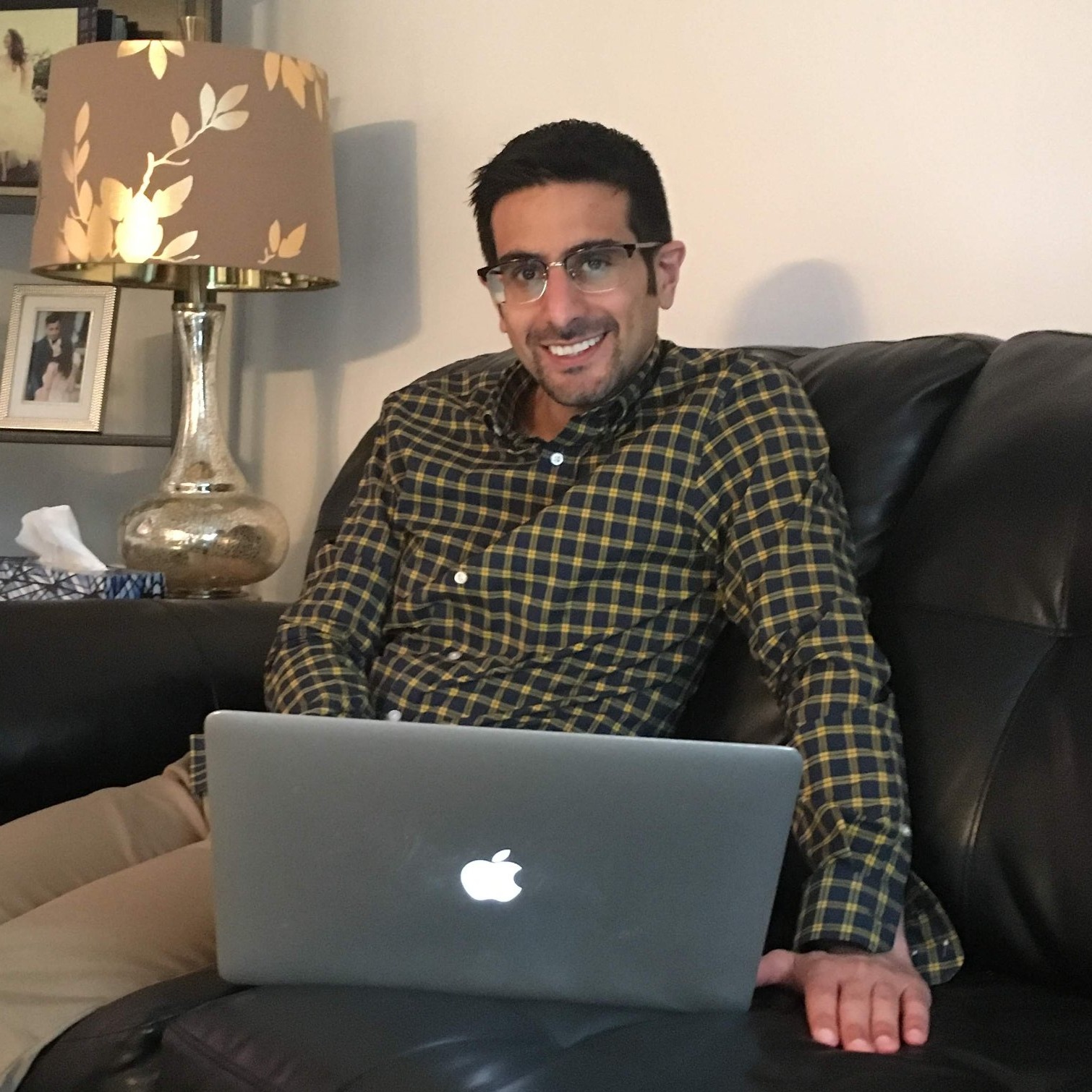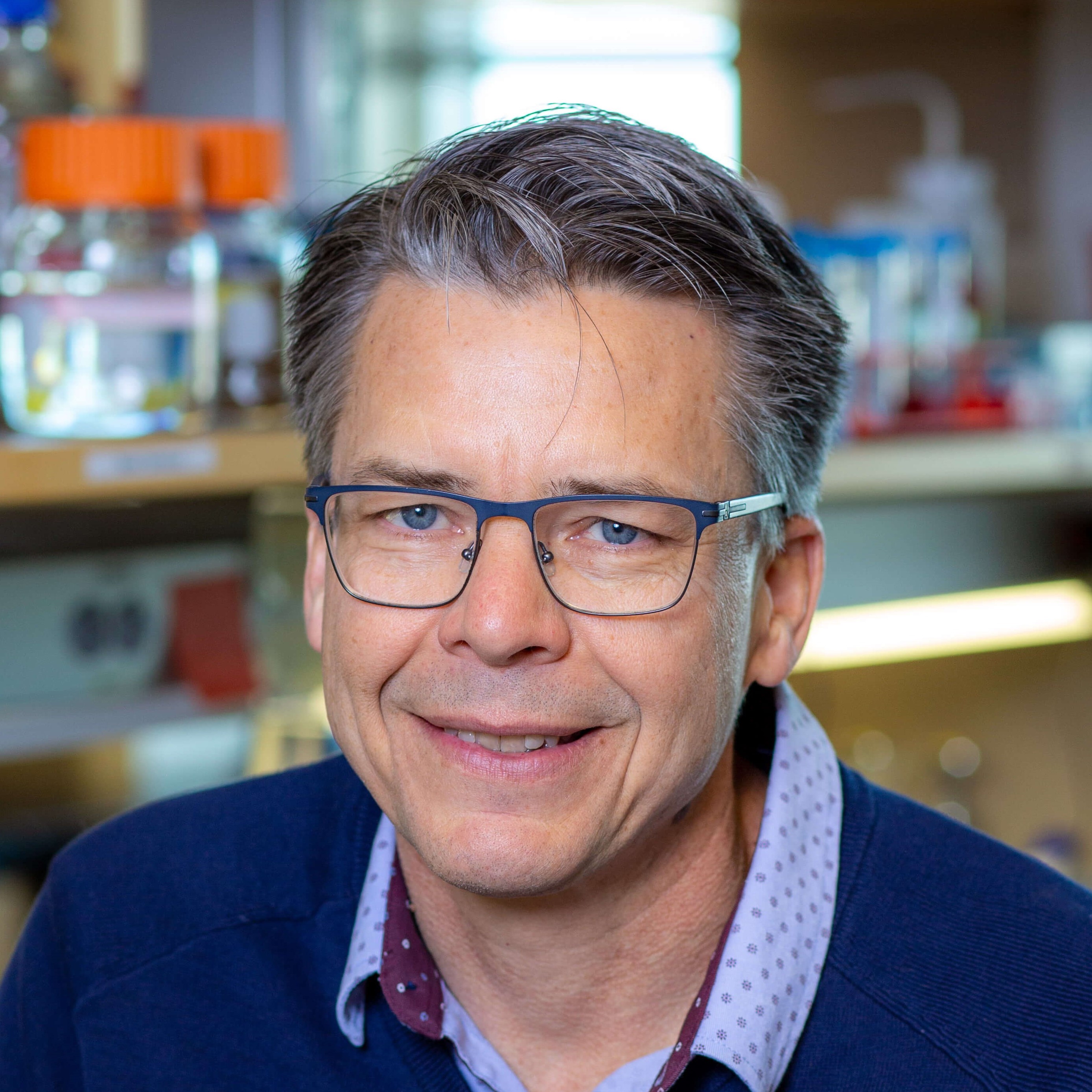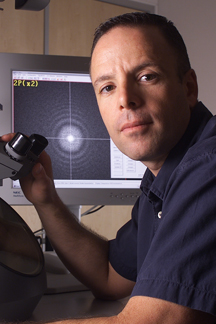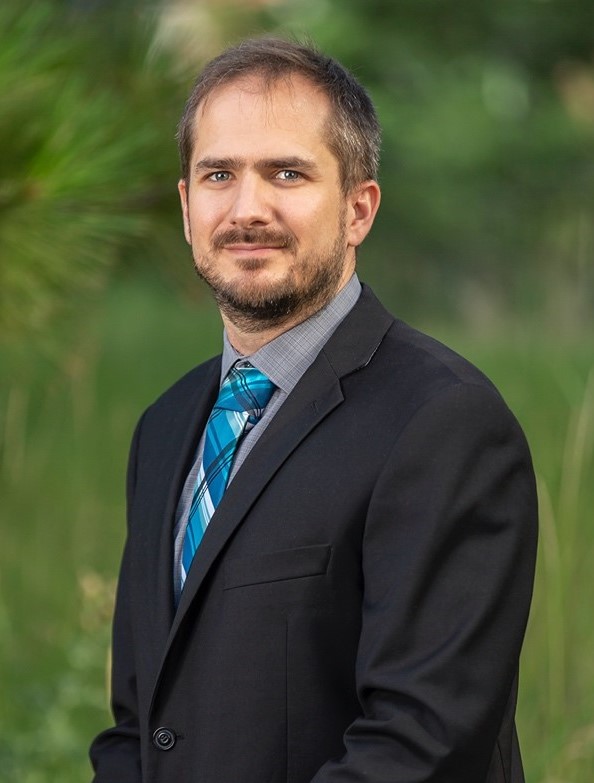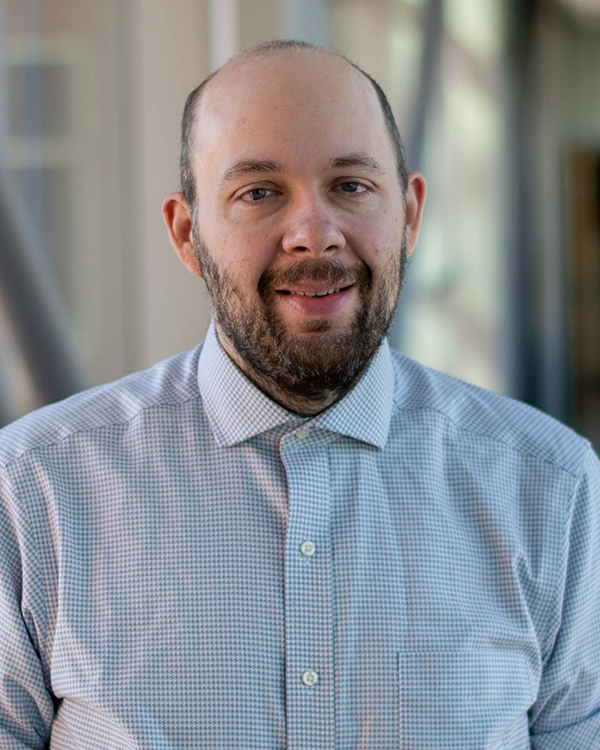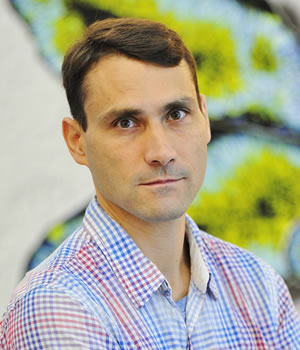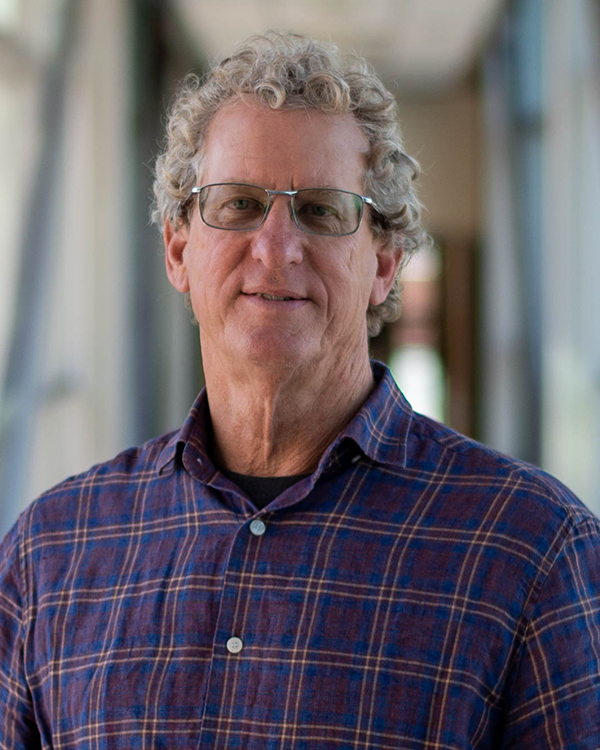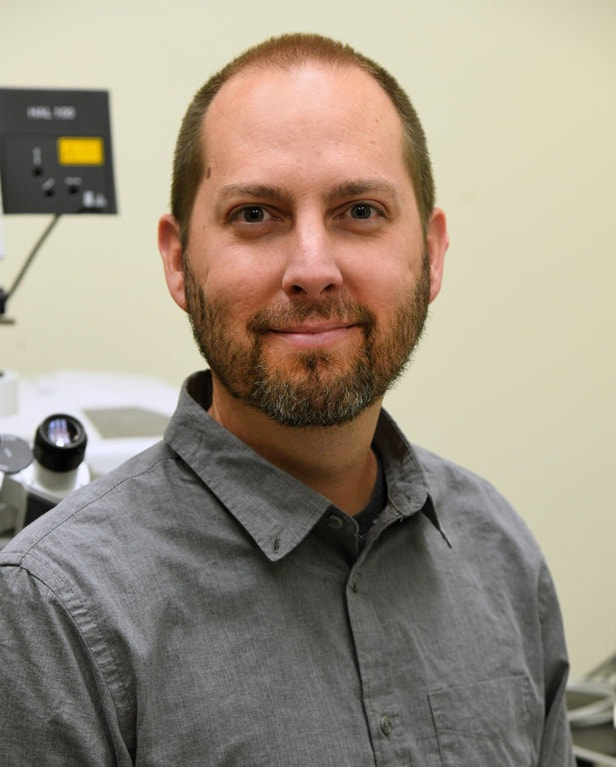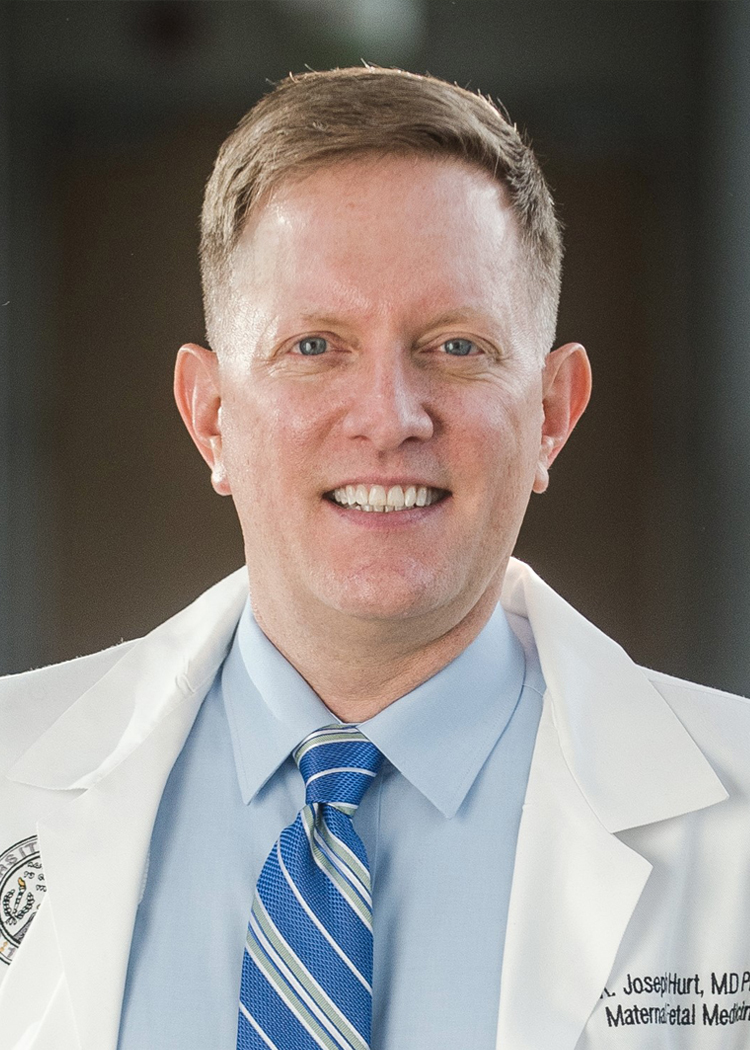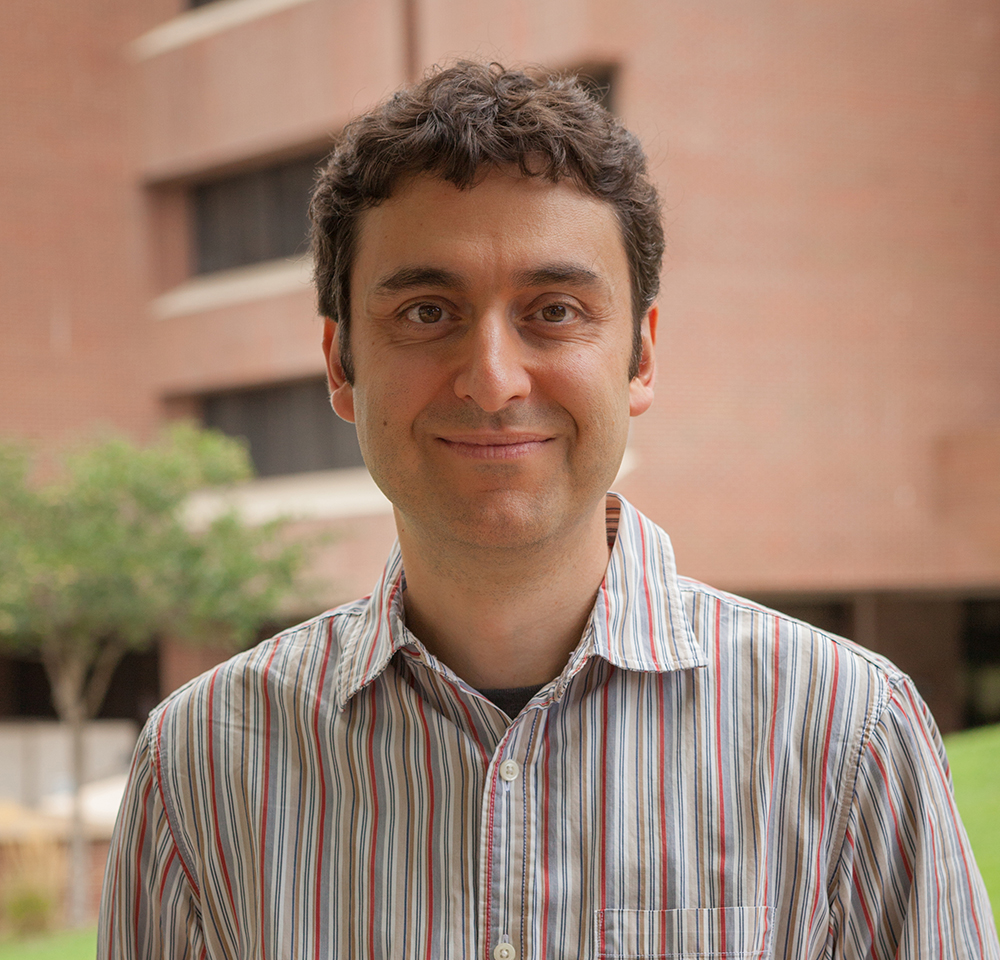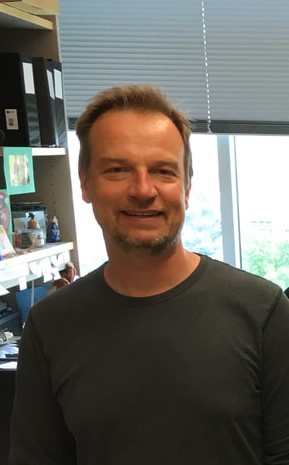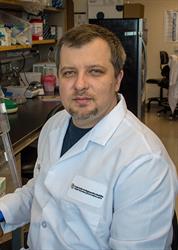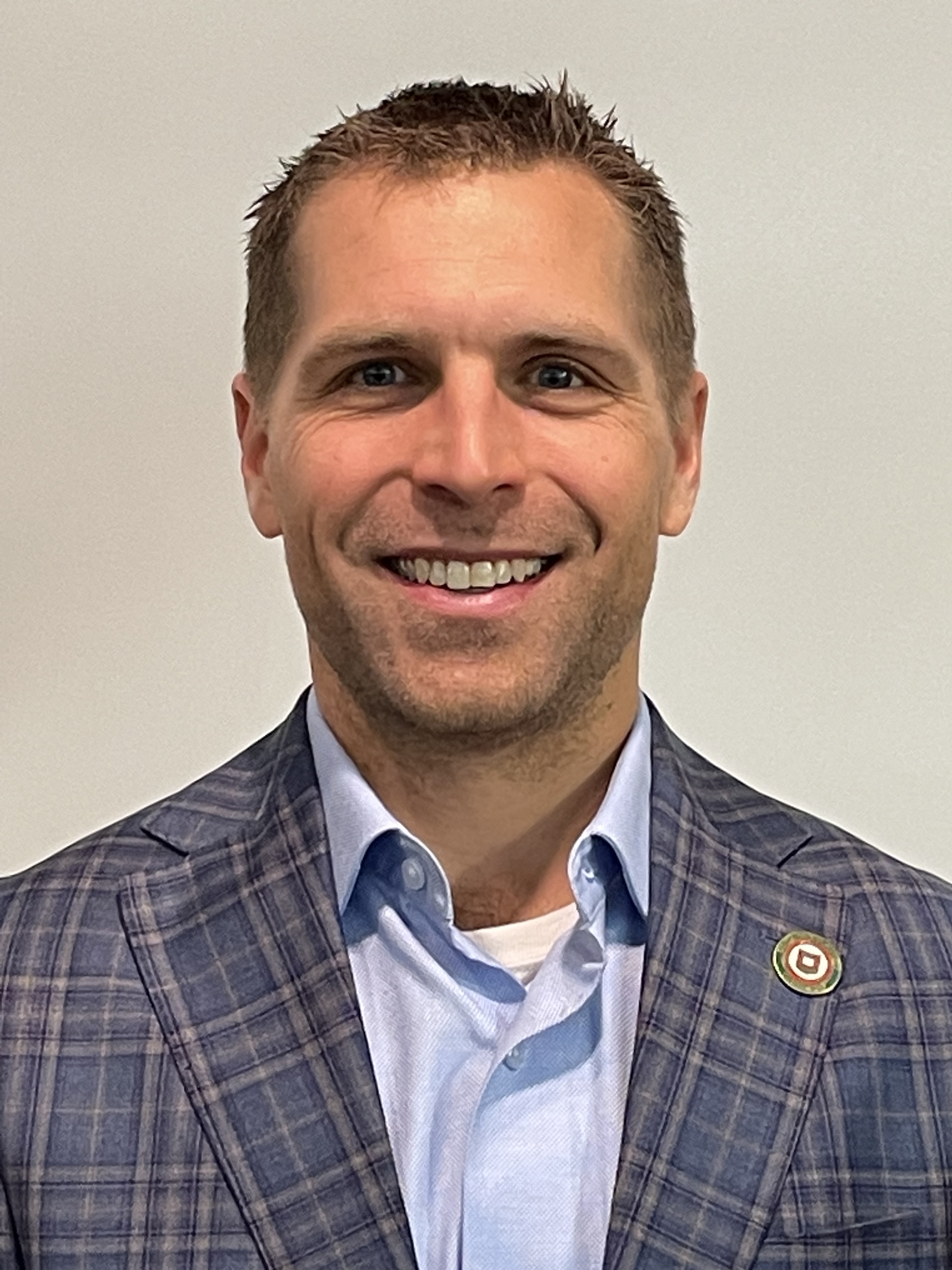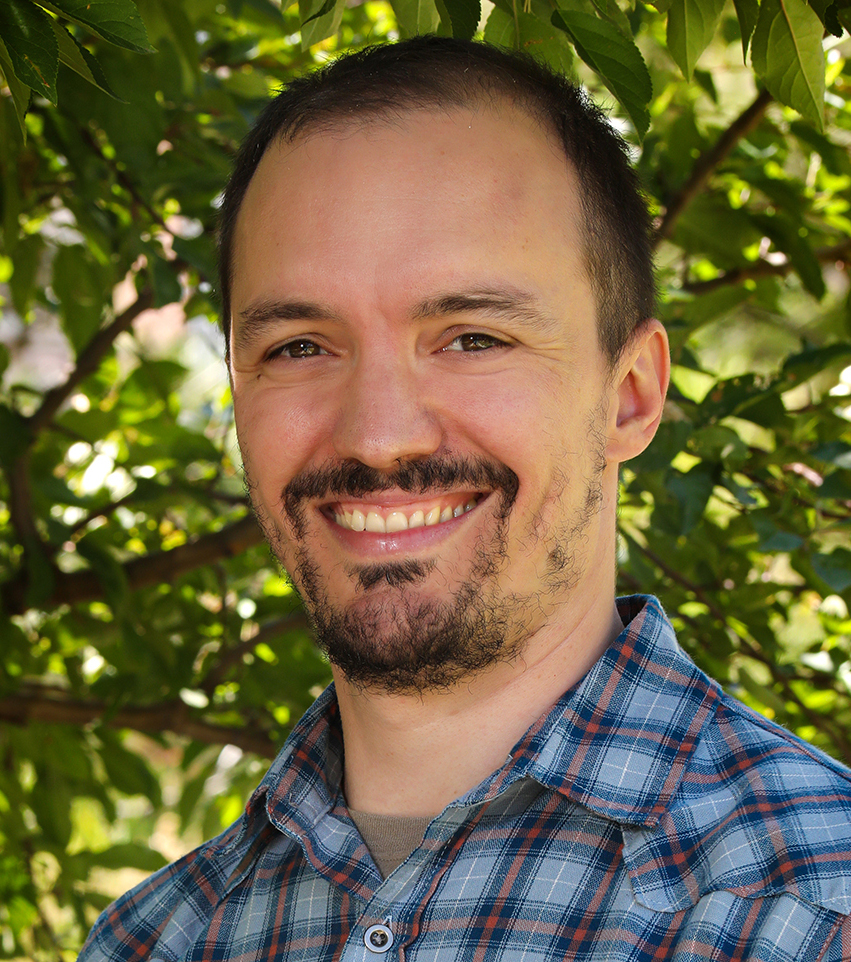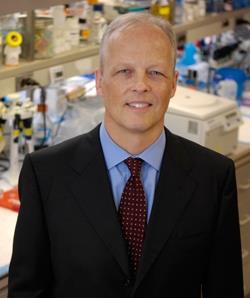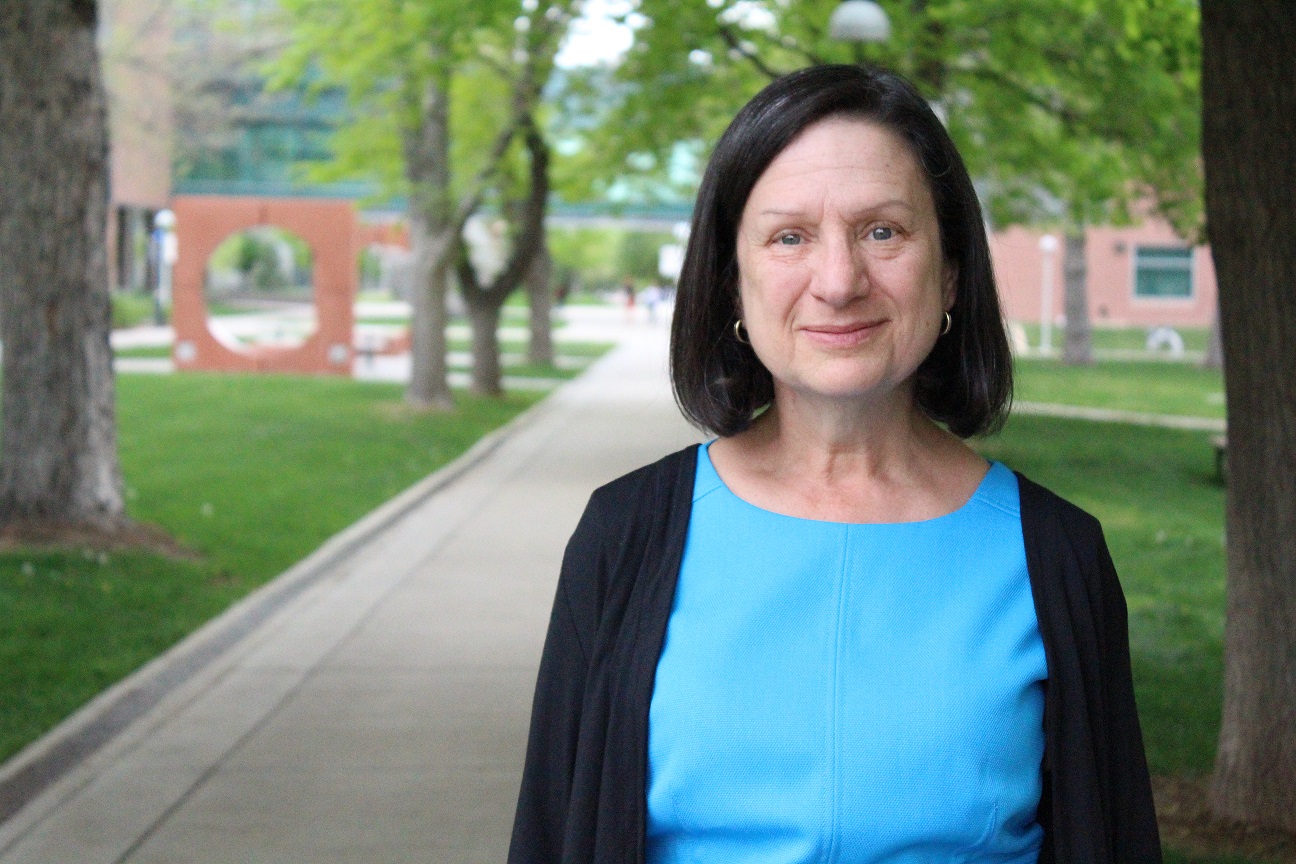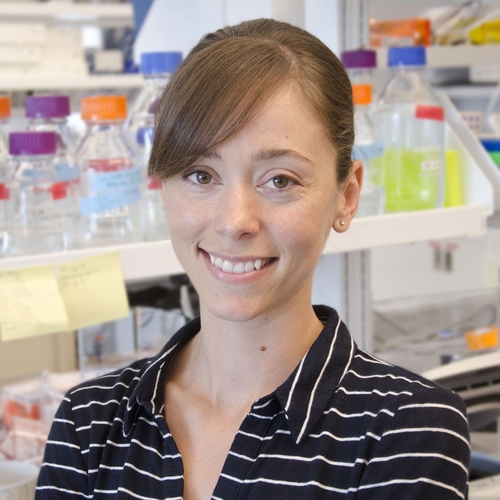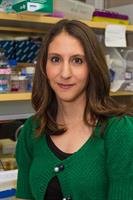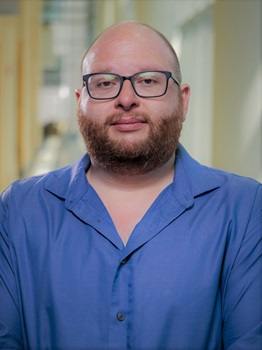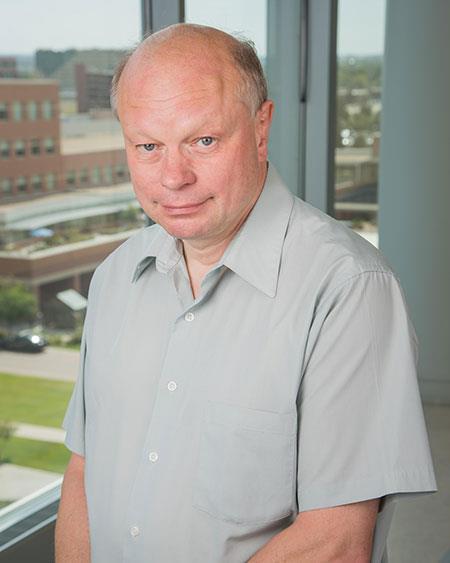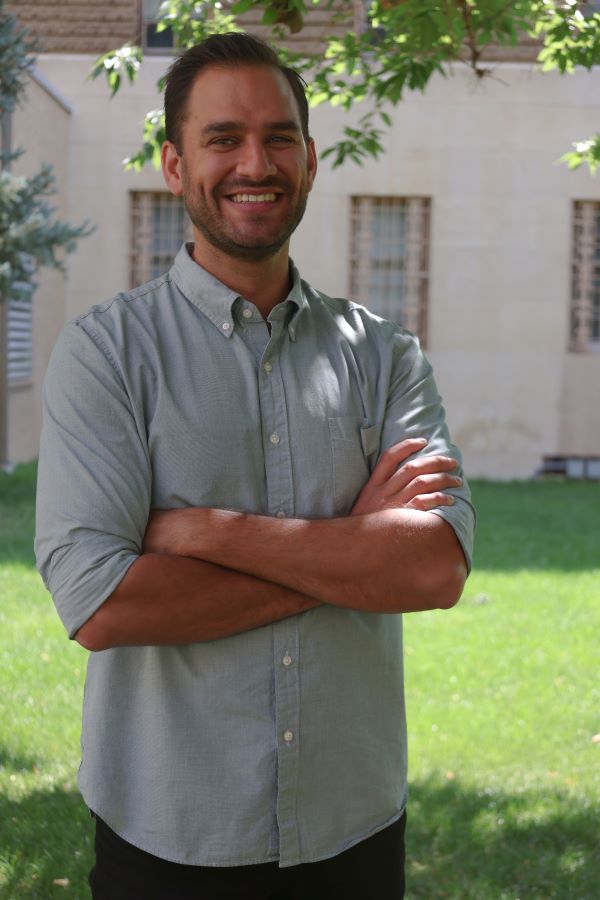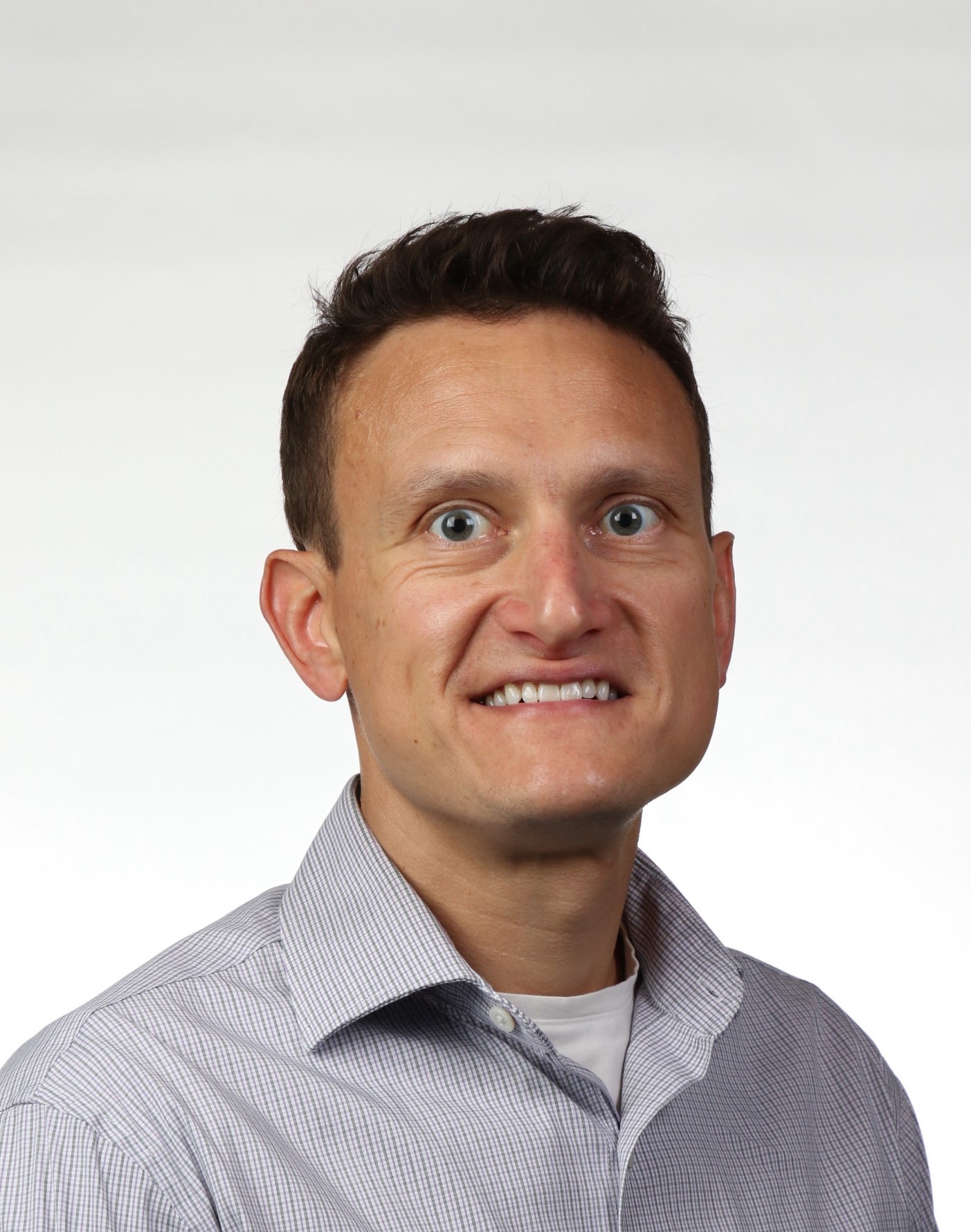TRAINING FACULTY
As a student in our umbrella program, you will have access to over 200 faculty in eleven different PhD programs.
Browse our faculty list below to explore learn more about their labs and research projects.
Search
Filter results by:
Cheryl Ackert-Bicknell PhD
Professor
Completed Mentor Training Course
Research Focus:
Gene Regulation
Osteogenesis/Osteoporosis
We focus on the genetic regulation of bone mass and the genetic causes of bone disease from the point of view of bone formation and strength. We use both forward and reverse genetics studies to interrogate the genetic causes of phenotypes critical to understanding bone quality that cannot be readily studied in human populations. These phenotypes of interest include bone composition, bone formation and mineralization by the osteoblast. In addition, we participate in many human cohort studies aimed at understanding the etiology of musculoskeletal disease wherein we determine the biological function of genes found to be associated with musculoskeletal traits. Lastly, we study the diagnosis of and the consequences of postoperative infection, with an emphasis on an infection associated with spinal instrumentation.
Email:[email protected]
Mazen Al Borno PhD
Assistant Professor
Research Focus:
Computational Neuroscience
Neuroengineering
Systems Neuroscience
Without being conscious of it, our motor system is constantly solving computationally challenging problems in ways that astonish both roboticists and neuroscientists. We develop computational models of animal movement to understand how the brain generates movement and design novel rehabilitation therapies and assistive devices for patients with movement disorders. We collaborate closely with neuroscientists, clinicians and roboticists to study the brain and help patients achieve a better quality of life.
Email:[email protected]
David Albers PhD
Associate Professor
Dr. David Albers lab focuses on advancing biomedicine using:
-data assimilation of both clinician and patient collected data to forecast physiology and compute new phenotypes
-health care process modeling and analysis
-temporal-focused spectral analysis and information theoretic tools
-mechanistic physiologic models using clinical data
-discovering phenotypes using temporal information within clinical data
-visualizing patient health evolution in an intensive care setting
-deconvolving biases present in clinical data
-computational machinery based on variational inference to discover features that can be used to define phenotypes and other clinically actionable quantities
Email:[email protected]
Michael Alberti MD, PhD
(he/him/his)
Assistant Professor
Research Focus:
Accepting Students
Cancer Biology
Gene Regulation
Genomics Bioinformatics
Stem Cells
The Alberti lab is working to better understand the genetic and molecular basis of splicing factor gene mutations in the initiation, development, and progression of clonal hematopoiesis and myeloid malignancies, such as myelodysplastic syndromes (MDS).
Email:[email protected]
Scott Alper PhD
Associate Professor
Completed Mentorship Training; Completed Upstander/Bystander Training
Research Focus:
Accepting Students
Cancer Biology
Gene Regulation
Inflammation
Dr. Alper's laboratory is focused on understanding the regulation of the innate immune response, particularly as it relates to the basis for inflammatory disease.
Email:[email protected]
Steve Anderson PhD
Professor
Research Focus:
Cancer Biology
Our major focus over the last five years has been to understand the role of the hexose transporter Glut1 in mammary tumorigenesis.
Email:[email protected]
Jason Aoto PhD
Associate Professor
Pharmacology and Molecular Medicine Program Director
Completed Mentor Training Course; Completed Upstander/Bystander Training
Research Focus:
Accepting Students
Cell and Molecular Neuroscience
Disease and Developmental Disorders
Neuropharmacology
Signal Transduction
Synaptic Physiology
We employ cutting-edge approaches including mouse genetics, optogenetics, viral circuit tracing, ex vivo slice electrophysiology, CRISPR/cas9 genome editing, single-cell RNA-sequencing and super-resolution microscopy to investigate how disease-relevant synaptic molecules are utilized in a cell-type- and synapse-specific manner in neural circuits implicated in neuropsychiatric disorders and addiction.
Email:[email protected]
Bruce Appel PhD
Professor
Completed Mentor Training Course
Research Focus:
Accepting Students
Developmental Biology
Developmental Neuroscience
Glia
We investigate the genetic, molecular and cellular basis of brain development and myelination using zebrafish as a model system.
Email:[email protected]
Francisco Asturias PhD
Professor
Research Focus:
Gene Regulation
Macromolecular Structure
Microbiology Virology
Despite including many different proteins, macromolecular complexes often display minimal enzymatic activity. This suggests that conformational changes and interactions are fundamental to their molecular mechanism. My group uses cryo-electron microscopy to characterize the structure, conformational states and interactions of macromolecular complexes involved in essential cellular processes. We correlate that structural information with biochemical and functional data to establish the mechanism of these remarkable cellular machines.
Email:[email protected]
David Bain PhD
Professor
Our work is focused in two main areas. First, we are interested in the molecular mechanisms of transcriptional regulation using the nuclear receptor superfamily as a model system. We use a blend of biophysical, structural and cell biological approaches to dissect the various protein-DNA and protein-protein interactions critical to transcriptional activation, and then use this information to synthesize and predict overall behavior. Our second focus is on characterizing the molecular interactions of therapeutic proteins, especially at high concentrations and under formulation/delivery conditions. This work is primarily directed toward monoclonal antibodies, but we are also interested in therapeutic peptides and vaccines.
Email:[email protected]
John Bankston PhD
(He/Him/His)
Associate Professor
Completed Mentor Training Course; Completed Implicit Bias Training
Research Focus:
Cardiovascular & Pulmonary Biology
Cellular Physiology
Developmental Neuroscience
Ion Channels & Biophysics
Macromolecular Structure
Neuroendocrinology
Neuropharmacology
Signal Transduction
We are interested in the molecular mechanisms of cellular excitability in the heart and brain. Our focus is on two different families of ion channels, the acid-sensing ion channels (ASICs) and hyperpolarization-activated cyclic nucleotide-modulated (HCN) channels. We study the structural and physiological mechanisms of channel function for each class of channel including how these channels are regulated by other proteins as well as the lipid membrane. To do this we use a combination of patch clamp, FRET, single-molecule fluorescence, and biochemistry.
Email:[email protected]
Linda Barlow PhD
Professor
Completed Mentor Training Course; Completed Upstander/Bystander Training
Research Focus:
Developmental Neuroscience
Sensory Systems
Stem Cells
We use in vivo molecular genetic mouse models, and in vitro taste organoids derived from adult lingual stem cells to understand how taste buds renew during normal homeostasis, and how this regenerative process is impacted by cancer therapies that cause taste dysfunction in patients.
Email:[email protected]
David Barton PhD
Professor
Research Focus:
Macromolecular Structure
Microbiology Virology
The Barton lab studies RNA viruses - viral RNA replication - and host-pathogen interactions involving viral RNA and endoribonucleases.
Email:[email protected]
Emily Bates PhD
(She/Her/Hers)
Associate Professor
Completed Mentor Training Course
Research Focus:
Accepting Students
Developmental Biology
Developmental Neuroscience
Disease and Developmental Disorders
Fly Research Group
Genomics Bioinformatics
Glia
Neuropharmacology
We study how ion channel activity (bioelectricity) contributes to morphological development in multiple tissues (craniofacial structures, fly wings, brain, pancreas, and bone).
Email:[email protected]
Ulli Bayer PhD
Professor
Completed Mentor Training Course
Research Focus:
Accepting Students
Cell and Molecular Neuroscience
Disease and Developmental Disorders
Ion Channels & Biophysics
Neuropharmacology
Signal Transduction
Structural Biology
Synaptic Signaling and Plasticity
Our field is molecular and cellular neuroscience. Specifically, we are interested in the molecular and cellular mechanisms underlying learning, memory and cognition. We also want to know how these mechanisms go wrong in disease, and how this could be repaired by new therapeutic strategies.
Email:[email protected]
Ece Bayram MD, PhD
Assistant Professor
Research Focus:
Cognitive Neuroscience
Disease and Developmental Disorders
Neurodegenerative Parkinsonian disorders are common and burdensome diseases. We focus on understanding risk and improving diagnostic approaches for all affected by these diseases. Our current projects include sex differences for genetic and environmental risk factors, social determinants, diagnostic tools, clinical profile, progression, impact on daily life, pathology and clinicopathological correlations in synucleinopathies (Parkinson’s disease, dementia with Lewy bodies, multiple system atrophy) and tauopathies (progressive supranuclear palsy, corticobasal syndrome), and we leverage existing human data. We also prioritize outreach, education, and communication for the community and trainees in STEM to improve access to research.
Email:[email protected]
Kurt Beam PhD
Distinguished Professor
Research Focus:
Ion Channels & Biophysics
My lab investigates intracellular calcium signals, which play essential roles including the activity-dependent regulation of gene expression in diverse cell types, muscle contraction, and neuronal plasticity. We use a variety of techniques including molecular biology, electrophysiology, biochemistry, and analysis of structure.
Email:[email protected]
Brad Bendiak PhD
Professor
My laboratory focuses on an understanding of the enzymes that synthesize cell surface carbohydrates, the glycosyltransferases. In addition, characterization of the carbohydrate structures themselves and development of new methods for elucidation of these molecules is ongoing.
Email:[email protected]
Richard Benninger PhD
Associate Professor
Completed Inclusive Teaching Trainings
Research Focus:
Cell Biology
Cellular Physiology
Molecular Nutrition & Metabolic Systems
The Benninger lab is a multi-disciplinary team of scientists who are guided by engineering principles and technologies to study the endocrine pancreas (islets of Langerhans). With mechanistic knowledge underlying the dynamics of islet function and hormone release, we can develop diagnostics and therapeutic interventions to effectively manage, cure and prevent diabetes. Towards this goal the lab combines novel optical imaging and ultrasound imaging approaches to study the function of the islets of Langerhans over multiple levels of organization, and how function is disrupted in diabetes.
Email:[email protected]
David Bentley PhD
Professor
Research Focus:
Gene Regulation
RNA Bioscience
Our research asks how the RNA polymerase II transcriptional machinery and RNA processing factors work together to achieve coordinated synthesis and maturation of messenger RNA (mRNA).
Email:[email protected]
Bryan Bergman PhD
Professor
Research Focus:
Molecular Nutrition & Metabolic Systems
Intermuscular adipose tissue, myosteatosis, lipidomics, triglyceride, insulin sensitivity, insulin resistance.
Email:[email protected]
Benjamin Bitler PhD
Associate Professor
Completed Mentor Training Course; Completed Upstander/Bystander Training
Research Focus:
Cancer Biology
Structural Biology
Dr. Bitler is committed to the fight against cancer through his work to elucidate the impact of cancer-related signaling and epigenetic regulation.
Email:[email protected]
Joshua Black PhD
Assistant Professor
Completed Mentor Training Course; Completed Upstander/Bystander Training
Research Focus:
Cancer Biology
Genomics Bioinformatics
Signal Transduction
Structural Biology
My lab studies how cells use epigenetics to control gene amplifications. We have identified epigenetic pathways that cells use to create transient increases in gene copy number. These copy number changes play roles in tumor development, progression and drug resistance. By understanding the fundamental mechanisms that govern copy number control we hope to allow better cancer therapies.
Email:[email protected]
Andrea Bonetto PhD
(he/him/his)
Associate Professor
Completed Upstander/Bystander Training
Research Focus:
Aging
Cancer Biology
Molecular Nutrition & Metabolic Systems
The Bonetto Lab investigates the molecular mechanisms responsible for abnormal muscle, bone and liver crosstalks in cachexia due to cancer and/or anticancer treatments. In order to achieve our goals, we leverage different in vitro and in vivo models, paired with a set of comprehensive molecular, metabolic, and pharmacologic tools to dissect the causes of musculoskeletal abnormalities associated with cancer.
Email:[email protected]
Gina Bouchard PhD
(She/her)
Assistant Professor
Research Focus:
Accepting Students
Cancer Biology
Computational Biology
Metabolism
The Bouchard lab investigates metabolic reprogramming within the irradiated tumor microenvironment through a spatial biology approach. We utilize a variety of models including 3D patient-derived assembloids and tissues to investigate cellular rearrangements following treatment with the primary goal of uncovering spatial features linked to metabolic resistance, ultimately aiming to enhance the effectiveness of radiotherapy in cancer patients.
Email:[email protected]
Kristen Boyle PhD
(She/Hers)
Associate Professor
Completed Mentor Training Course, Upstander/Bystander Training
Research Focus:
Development
Developmental Biology
Gene Regulation
Molecular Nutrition & Metabolic Systems
Stem Cells
Our research focuses on understanding how infants exposed to stressors in utero, such as obesity, diabetes, or biological stress, can predispose that child to obesity or metabolic disease using mesenchymal stem cells from infant umbilical cord tissue.
Email:[email protected]
Andrew Bradford PhD
Professor
Research Focus:
Molecular Nutrition & Metabolic Systems
Reproductive Biology
My research interests focus on hormone/growth factor signaling and cancer. Specifically, our laboratory is studying the role of selective protein kinase C (PKC) isoforms in the modulation of cell growth and death in endometrial cancer.
Email:[email protected]
Alessandra Brambati PhD
(she/her)
Assistant Professor
Completed Mentor Training Course
Research Focus:
Accepting Students
Cancer Biology
Cell Biology
Chromosome Biology
Genetics
We study the molecular mechanisms that regulate DNA repair and genome instability, focusing on non-canonical double-strand break repair pathways. Using CRISPR technology, sequencing, and live-cell imaging, we investigate how these pathways function and how their disruption contributes to cancer development and disease progression.
Email:[email protected]
Martin Breuss PhD
(He/Him)
Assistant Professor
Completed Mentor Training Course; Completed Maximizing Mentoring; Completed HEAL Foundations in Equity Certificate; Completed Raising a Resilient Scientist Training; Completed Implicit Bias Training; Completed Bystander/Upstander Training
Research Focus:
Accepting Students
Development
Genomics Bioinformatics
Neuro Genetics
Neurodevelopment
Reproductive Biology
The Breuss laboratory is interested in genomic (and cellular) mosaicism. We assess its impact on human disease and utilize it as a tool to unravel mechanisms of development and cellular homeostasis. While we are broadly interested in these questions, two of our favorite systems to study are human germ cells and the brain.
Email:[email protected]
James Bridges PhD
Associate Professor
Completed Mentor Training Course
Research Focus:
Cell Biology
Development
My primary research interests are focused toward: 1) understanding the regulation of alveolar epithelial cell maturation during lung development and 2) determining the molecular regulation of surfactant pool sizes in the postnatal and adult lung, with particular interest in diseases associated with surfactant dysfunction.
Email:[email protected]
Joseph Brzezinski PhD
Associate Professor
Completed Upstander/Bystander Training, Completed Mentor Training Course, Completed Equity Certificate
Research Focus:
Developmental Neuroscience
Gene Regulation
Sensory Systems
We are interested in uncovering the mechanisms that regulate mammalian retinal development and applying this knowledge to inform novel stem cell based treatments that restore vision. We primarily use mice and human retinal organoids as model systems.
Email:[email protected]
Matthew Burchill PhD
Associate Professor
Completed Mentor Training Course
Research Focus:
Accepting Students
Research in our laboratory leverages our expertise in immunology, molecular biology and model systems of liver disease to explore the early and late events that influence the progression of chronic liver disease.
Email:[email protected]
M. Cecilia Caino PhD
(she/her/hers)
Assistant Professor
Facilitated and Completed Mentor Training Course; Completed Upstander/Bystander Training, Completed Equity Certificate,
Research Focus:
Accepting Students
Cancer Biology
Cell Biology
Cellular Structure
Signal Transduction
Structural Biology
Our group aims to understand how mitochondria reprogramming in tumors impact cellular behaviors that drive progressive and lethal cancer. We use a broad repertoire of biochemistry, cell biology, live cell imaging and animal models to study the impact of mitochondria shape, number and subcellular distribution in metastatic dissemination.
Email:[email protected]
Uwe Christians MD, PhD
Professor
Research Focus:
Accepting Students
My research interests include pharmacokinetic and pharmacodynamic therapeutic drug monitoring, clinical biochemistry, biochemical toxicology, and drug metabolism. My research has focused on the interactions between energy metabolism, mitochondrial metabolism and the mTOR pathway. This includes the toxicodynamic interactions between calcineurin and mTOR pathway inhibitors, ageing, metabolic diseases, oxidative stress, ischemia/ reperfusion injury and drug-coated coronary stents and balloons.
Email:[email protected]
Jason Christie PhD
Professor
Research Focus:
Accepting Students
Disease and Developmental Disorders
Ion Channels & Biophysics
Neuropharmacology
Synaptic Physiology
Systems Neuroscience
The Christie Lab endeavors to understand the neural-circuit-mechanisms that underlie the learning-dependent optimization of behavior. The lab’s approach mainly focuses on the cerebellum, a brain region that guides adaptive updating of simple reflexive movements as well as experience-driven refinement of high-order brain function (e.g., thinking, planning, and decision making).
Email:[email protected]
Mair Churchill PhD
Professor
Research Focus:
Chromosome Biology
Gene Regulation
Genomics Bioinformatics
Macromolecular Structure
Microbiology Virology
Structural Biology
My lab is interested in understanding the molecular basis of essential processes that regulate gene expression. We use biophysical, biochemical methods, and structural methods, including X-ray crystallography. Our insights into these fundamental mechanisms will contribute to a better understanding and ability to regulate gene expression processes involved in human diseases and will assist in drug development efforts.
Our studies focus on the following questions: (1) How is chromatin structure modulated for DNA-dependent processes? and (2) How do transcription factors and pioneering factors activate gene expression?
Email:[email protected]
Diana Cittelly PhD
(she/her/hers)
Associate Professor
Completed Mentor Training Course
Research Focus:
Cancer Biology
Inflammation
Neuropharmacology
Signal Transduction
Deciphering the mechanisms underlying increased risk of brain metastases in young women with triple negative breast cancer. These include ovarian estrogen effects on reactive astrocytes that results in paracrine activation of EGFR and TRKB signaling in brain metastatic cells.
Email:[email protected]
Sarah Clark PhD
Assistant Professor
Completed Upstander/Bystander Training; Completed Mentor Training Courses
Research Focus:
Bacteriology
Cardiovascular & Pulmonary Biology
Inflammation
Microbiology Virology
The Clark lab investigates bacterial-driven immune modulation in the respiratory tract. The upper respiratory tract is home to a diverse microbial community that includes both commensal and opportunistic bacterial pathogens. Research in the lab explores how exposure to these bacteria influences upper and lower respiratory tract inflammation and disease, with a focus on the innate immune response to acute infection.
Email:[email protected]
Katrina Claw PhD
Assistant Professor
Research Focus:
Accepting Students
Computational Biology and Personalized Medicine
Genomics Bioinformatics
Molecular Nutrition & Metabolic Systems
My research focuses broadly on personalizing medicine, using genetic information and biomarkers for tailored treatment, in relation to pharmacogenomics as well as understanding the ethical, cultural, and social implications of genomic research with populations historically underrepresented in health research. My current research includes studying cytochrome P450 genetic variation in Indigenous communities (e.g., American Indian and Alaska Native peoples), with a focus on CYP2A6 variation in relation to nicotine metabolism and smoking cessation, as well as understanding the ways in which adaptations to diverse local environments may have impacted modern pharmacogenomic variation and evolutionary medicine. My other projects include exploring the perspectives of tribal members on genetic research with tribes and developing guidelines and policies in partnership with tribes. All of my projects strive to use community based participatory research approach and include cultural and Indigenous knowledge.
Email:[email protected]
David Clouthier PhD
Professor
Completed Upstander/Bystander Training; Completed Mentor Training Course
Research Focus:
Development
Neural crest cells (NCCs) arise at the junction between the neural and non-neural ectoderm before moving ventrally around the embryo along the entire rostro-caudal axis. Cranial NCCs form most of the bone and cartilage in the face, explaining why defects in early NCC patterning are so devastating to human facial development. Our lab uses a number of cutting edge molecular and cellular techniques and approaches in both mouse and zebrafish models to dissect signaling networks that decide the fate of NCCs. We then use this information to better understand the basis for human birth defect syndromes affecting the face for which a genetic basis has not been established.
Email:[email protected]
Joanne Cole PhD
(She/Hers)
Assistant Professor
Completed Upstander/Bystander Training; Completed Multicultural Mentoring; Completed Mentorship Academy Trainings
Research Focus:
Accepting Students
Bioinformatics
Computational Biology
Computational Biology and Personalized Medicine
Diabetes
Endocrinology
Epidemiology
Gene Regulation
Genomics Bioinformatics
Molecular Nutrition & Metabolic Systems
Sensory Systems
The Cole Lab uses large-scale genomics as a tool to learn more about diet's role in the body and human health, with a focus on cardiometabolic disease. Our three primary and related goals are to: 1) improve dietary phenotypes derived from diet questionnaires, 2) elucidate the underlying environmental and biological mechanisms influencing dietary intake and food metabolism, and 3) understand diet's role in human health through epidemiological approaches and human studies.
Email:[email protected]
James Costello PhD
(he/him/his)
Associate Professor
Pharmacology Program Director
Completed Upstander/Bystander Training, Completed Mentor Training Course
Research Focus:
Cancer Biology
Computational Biology and Personalized Medicine
Genomics Bioinformatics
Signal Transduction
Within the broad scope of systems biology, my lab focuses on 3 research areas: 1) Network inference for identifying drug targets, 2) Predicting drug sensitivity from -omics datasets, and 3) Modeling temporal effects of drug combinations.
Email:[email protected]
Curtis Coughlin II PhD
Associate Professor
Research Focus:
Inborn Errors of Metabolism
Rare Diseases
We are a translational research lab focusing on inborn errors of metabolism such as pyridoxine-dependent epilepsy (PDE), glutaric aciduria type I (GA I), and vitamin B6 metabolism. We are committed to scientist - advocate collaborations with the goal to ensure scientific advances are relevant and patient-centered. We partner with families, clinicians, and scientists to study the natural history of these neurologic disorders and the impact of therapies on clinical outcomes.
Email:[email protected]
Scott Cramer PhD
Professor
Research Focus:
Cancer Biology
Genomics Bioinformatics
Prostate Cancer Tumor Suppressors, Stem Cells, Tumor Initiating cells, Signal Transduction, Receptor Signaling.
Email:[email protected]
Alberto Cruz Martin PhD
Associate Professor
Research Focus:
Accepting Students
Cell and Molecular Neuroscience
Cell Biology
Cellular Physiology
Computational Neuroscience
Developmental Neuroscience
Disease and Developmental Disorders
Neuroimmunology
Synaptic Physiology
Synaptic Signaling and Plasticity
The Cruz-Martín Neural Circuits Lab investigates how immune pathways shape brain wiring, plasticity, and vulnerability to psychiatric disorders. Leveraging cutting-edge tools—from in vivo two-photon calcium imaging and STED super-resolution microscopy to spatial transcriptomics and cell-type–resolved transcriptomic mapping—we probe how complement-mediated signaling modulates interneuron connectivity and circuit function. We further examine how environmental perturbations like early-life stress intersect with genetic and neuroimmune susceptibility in schizophrenia. Our integrative, multi-scale approach illuminates the cellular and molecular mechanisms underlying brain disorders and may pave the way for more precise circuit-based interventions.
Email:[email protected]
Fabrice Dabertrand PhD
Associate Professor
Completed Upstander/Bystander Training; Completed Implicit Bias Training; Completed Mentor Training Course
Research Focus:
Accepting Students
Cardiovascular & Pulmonary Biology
Cardiovascular and Pulmonary Neuroscience
Disease and Developmental Disorders
Ion Channels & Biophysics
Neurological Disorders and Stroke
Neuropharmacology
Signal Transduction
The control of cerebral blood flow by ion channels and calcium signaling in the pericytes, endothelial cells, and smooth muscle cells that constitute the parenchymal microcirculation, and use this information to combat brain diseases with a vascular component.
Email:[email protected]
Shaodong Dai PhD
Associate Professor
Completed Upstander/Bystander Training; Completed Mentor Training Course
Research Focus:
Accepting Students
Cellular Structure
Diabetes
Infectious Disease
Rheumatoid Arthritis
Research interests include: (1) CAR T and engineered T cell therapies of autoimmune diseases; (2) Mechanisms of T cell mediated metal hypersensitivities; (3) Mechanisms of T cell recognition of autoantigens in Type 1 diabetes and RA; and (4) Redox signaling and drug design in the immune diseases and infectious diseases.
Email:[email protected]
Harriet Dashnow PhD
(She/Her)
Assistant Professor
Completed Mentor Training Course; Completed Upstander/Bystander Training
Research Focus:
Accepting Students
Bioinformatics
Computational Biology
Computational Biology and Personalized Medicine
Developmental Disorders
Epilepsy
Genetics
Genomics
Genomics Bioinformatics
Motor and Cognitive Disorders
We develop and apply computational methods for the diagnosis and discovery of the genetic basis of rare diseases. The lab has a special emphasis on Short Tandem Repeats and other hard-to-genotype variants.
Email:[email protected]
Natalie Davidson PhD
(She/Her)
Assistant Professor
Completed Mentor Training Course
Research Focus:
Accepting Students
Machine Learning
ovarian cancer
Our lab is driven by three core pillars: cutting-edge methods development, deep exploration of ovarian cancer biology, and a commitment to real-world translational impact. While machine learning has transformed our many aspects of our lives, applying it to ovarian cancer—an uncommon and highly heterogeneous disease—presents unique challenges. Our lab builds and applies advanced computational methods to make the most of available data, integrating diverse, high-throughput sequencing datasets across different modalities and scales. If you're excited by the intersection of AI, cancer research, and human health, join us.
Email:[email protected]
James Degregori PhD
(he/him/his)
Professor
Completed Mentor Training Course
Research Focus:
Accepting Students
Cancer Biology
Cell Biology
Exploring the conditions that foster somatic evolution and discovering cancer vulnerabilities.
Email:[email protected]
Mark Dell'Acqua PhD
Professor
Completed Mentor Training Course; Completed Upstander/Bystander Training
Research Focus:
Cell Biology
Ion Channels & Biophysics
Neuropharmacology
Signal Transduction
Synaptic Signaling and Plasticity
My laboratory’s specific research in the area of neuropharmacology focuses on understanding how cAMP and calcium second messenger signaling pathways are organized at the postsynaptic specializations of excitatory neuronal synapses and how these mechanisms are impacted in neurodegenerative and neurodevelopmental disorders.
Email:[email protected]
Peter Dempsey PhD
Associate Professor
Research Focus:
Stem Cells
Dr. Peter Dempsey's program focuses on the role of ADAM metalloproteinases in regulating extracellular signaling events involved in normal tissue homeostasis of the gastrointestinal tract and during injury/inflammation and cancer pathogenesis.
Email:[email protected]
Caroline Dias MD, PhD
Assistant Professor
Completed Upstander/Bystander Training; Completed Implicit Bias Training; Completed Raising a Resilient Scientist Training
Research Focus:
Cell and Molecular Neuroscience
Developmental Neuroscience
Disease and Developmental Disorders
The Dias Lab is broadly interested in the genetic basis of human brain function. We are interested in better understanding the molecular mechanisms underlying the healthy human brain as well as neurodevelopmental, psychiatric, and neurodegenerative disorders. In order to do this, we are tackling two major challenges in the field- cellular and clinical heterogeneity.
Email:[email protected]
Hans Dooms PhD
Assistant Professor
Completed Upstander/Bystander Training; Completed Implicit Bias Training; Completed DEI Training
Research Focus:
Autoimmune Disorders
Diabetes
My laboratory studies how dysregulation of pathogenic and protective T cells causes autoimmunity. We are specifically interested in the mechanisms underlying the autoimmune diseases Type 1 Diabetes and Systemic Sclerosis/Scleroderma. We focus on identifying the factors and pathways that enable autoreactive T cells to escape immune regulatory checkpoints and cause tissue damage, with the goal of using this knowledge for the development of innovative immunotherapies.
Email:[email protected]
Kelly Doran PhD
Professor
Completed Mentor Training Course
Research Focus:
Infectious Disease
Reproductive Biology
The overall interest of the Doran Lab is the study of host - pathogen interactions in the central nervous system and the female reproductive tract. Our studies focus on major human pathogens including Streptococcus agalactiae (also known as Group B Streptococcus, GBS), a leading cause of invasive disease in newborns and certain adult populations including pregnant women. We seek to elucidate the mechanisms by which GBS colonizes the vaginal tract during pregnancy and penetrates the blood-brain barrier in the newborn to cause meningitis, as well as characterize host response to infection and colonization.
Email:[email protected]
Breck Duerkop PhD
Associate Professor
Co-Director, Microbiology Program
Completed Upstander/Bystander Training
The Duerkop lab studies bacterial viruses (bacteriophages or phages) and their interactions with their hosts. The long-term goal of the Duerkop lab is to understand how phages and other forms of mobile DNA contribute to host-microbe interactions in the intestine and their overall impact on human health.
Email:Breck Duerkop
Elan Eisenmesser PhD
Associate Professor
Completed Mentor Training Course
Research Focus:
Accepting Students
Cancer Biology
Signal Transduction
The Eisenmesser lab takes a unique approach to understand protein function, and particularly enzyme function, by utilizing molecular engineering methods to control both structural interactions and the underlying movements that underlie their conformational changes. The ultimate goal of the Eisenmesser lab is to fully characterize molecular interactions at both atomic resolution and biological levels with a particular emphasis on medically relevant systems that may be exploited to either block or promote events underlying disease progression.
Email:[email protected]
Patricia Ernst PhD
(she/her/hers)
Professor
Completed Mentor Training Course; Completed Upstander/Bystander Training
Research Focus:
Cancer Biology
Gene Regulation
Signal Transduction
Our group focuses on epigenetic mechanisms regulating normal hematopoiesis and leukemia focusing on MLL-family histone methyltransferases.
Email:[email protected]
Tom Evans PhD
Associate Professor
Research Focus:
Developmental Biology
Gene Regulation
Genomics Bioinformatics
Cytoplasmic mRNA regulation is very important during oogenesis, early embryogenesis, and during stem cell divisions that occur throughout development. The mechanisms that regulate cytoplasmic mRNAs and that tie this control to the development of living cells are poorly understood. Recent studies hint that the mechanisms are similar in many animals and that they are important for various human diseases. We are exploring this problem in the small nematode worm, Caenorhabditis elegans.
Email:[email protected]
Katherine Fantauzzo PhD
Associate Professor
Completed Mentor Training Course; Completed Upstander/Bystander Training; Completed DEI Training Course
Research Focus:
Cell Biology
Developmental Biology
RNA Bioscience
Signal Transduction
Our laboratory is focused on investigating the mechanism and function of signaling through a particular family of receptor tyrosine kinases, the platelet-derived growth factor (PDGF) receptor family, in development of the mammalian neural crest-derived craniofacial skeleton.
Email:[email protected]
Gidon Felsen PhD
(He/Him)
Professor
Completed Mentor Training Course
Research Focus:
Accepting Students
Cellular Physiology
Cognitive Neuroscience
Computational Neuroscience
Disease and Developmental Disorders
Molecular Nutrition & Metabolic Systems
Neuroengineering
Optogenetics
Systems Neuroscience
The Felsen lab studies the neural circuit basis of behavior and decision making. We use electrophysiological, behavioral, pharmacological, molecular, and computational methods to examine how sensory input is transformed into plans for motor output, and how movements in turn affect sensory perception and representations. We are interested in how these processes occur in the normal brain, as well as how they are affected by pathological conditions.
Email:[email protected]
Ana I. Fernandez-Marino MSc, PhD
Assistant Professor
Completed Mentor Training Course
Research Focus:
Accepting Students
Cardiovascular & Pulmonary Biology
Ion Channels & Biophysics
Neuropharmacology
Structural Biology
We are a multidisciplinary laboratory uncovering how voltage-gated ion channels are controlled and how failure in their regulation leads to human disease. By integrating high-resolution structural biology with rigorous electrophysiology for functional determination, we aim to bridge from biophysics into physiology. We are particularly interested in studying how disease-causing mutations re-shape channel gating and pharmacology. Our goal is to translate mechanistic insight into therapeutic opportunities by identifying the different states of ion channel regulation for targeted modulation. Ultimately, we aim to give mechanistic insight to disease and lay the foundations for precision intervention in channelopathies.
Email:[email protected]
Thomas Finger PhD
Professor
Research Focus:
Developmental Neuroscience
Systems Neuroscience
A major emphasis in my laboratory is on questions concerning the development and organization of these systems in several vertebrate models. Three major areas are under investigation at present: 1) morphology and function of solitary chemosensory cells (see Finger et al. PNAS 2003) in protection of the airways and gut, 2) the cellular organization and development of taste buds (see Finger et al, Science 2005, and 3) regulation of feeding behavior by taste and other oropharyngeal chemoreceptors.
Email:[email protected]
Christopher Ford PhD
Professor
Completed Upstander/Bystander Training; Completed Mentor Training Course
Research Focus:
Accepting Students
Disease and Developmental Disorders
Neuropharmacology
Signal Transduction
Synaptic Physiology
Systems Neuroscience
Our lab examines how neuromodulators are encoded in the mesolimbic and nigrostriatal systems and how circuit dysfunctions in these areas contribute to neurological and psychiatric disorders.
Email:[email protected]
Heide Ford PhD
(she/her)
Professor
Completed Mentor Training Course, Completed Upstander/Bystander Training
Research Focus:
Cancer Biology
Gene Regulation
Genomics Bioinformatics
Signal Transduction
Our laboratory focuses on a specific family of homeoproteins, the Six family, and their transcriptional cofactors, Eya and Dach. The Six1 homeobox gene is overexpressed in 50% of primary breast cancers and 90% of metastatic lesions, and its overexpression.
Email:[email protected]
Craig Forester MD, PhD
Assistant Professor
Completed Mentor Training Course
Research Focus:
Cancer Biology
Gene Regulation
Our lab seeks to define how epitranscriptomic changes impact specificity in protein synthesis across an array of contexts including pediatric bone marrow failure and oncogenesis predisposition
Email:[email protected]
Santos Franco PhD
Associate Professor
Completed Mentor Training Courses, Completed Implicit Bias Training, Completed Upstander/Bystander Training
Research Focus:
Developmental Neuroscience
Disease and Developmental Disorders
Glia
The cerebral cortex is the control center of most of our higher-level brain functions, including thought, language, memory and emotion. During cortical development, billions of neurons and glia must be precisely specified and assembled into the intricate circuits that underlie these complex tasks. Disruption of these processes is associated with many devastating human neurological disorders, including epilepsy, schizophrenia, autism and intellectual disability. Our lab studies several processes involved in the formation and function of neural circuits in the cerebral cortex.
Email:[email protected]
Curt Freed MD
Professor Emeritus
Research Focus:
Neuropharmacology
Research in my laboratory has focused on improving treatments for Parkinson's disease. In 1988, we performed the first transplant of dopamine-producing brain cells into an American patient with Parkinson's. We have done more brain cell transplants than any other group. While the transplanted cells can replace the need to take drugs like L-DOPA, they do not stop the relentless progression of the underlying disease. In 2006, we began the search for a drug to stop Parkinson’s and have found phenylbutyrate. In animal testing, phenylbutyrate can prevent Parkinson’s from advancing. We are now testing phenylbutyrate in patients and should know in the next few years if it is able to stop the progression of Parkinson's disease in people.
Email:[email protected]
Rachel Friedman PhD
(She/Her/Hers)
Associate Professor
Completed Upstander/Bystander Training, Completed Implicit Bias Training
Research Focus:
Adaptive Immunity
Autoimmune Disorders
Diabetes
Endocrinology
Immunotherapy
Innate Immunity
The Friedman Lab is interested in understanding how the immune system is dynamically regulated through cellular interactions and environmental cues, using techniques like 2-photon microscopy, spectral flow cytometry, and single-cell RNA sequencing. We identify mechanisms of immune activation and tolerance in autoimmunity with a focus on type 1 diabetes. Our goal is to translate our findings into novel therapeutic approaches for regulating the immune response. We value fostering an inclusive and collaborative research environment.
Email:[email protected]
Laurent Gapin PhD
(He/Him/His)
Professor
Research Focus:
Development
Gene Regulation
Genomics Bioinformatics
Signal Transduction
My laboratory's research is centered around "innate-like" T-cell populations, with a specific focus on iNKT cells. These cells have T-cell antigen receptors but are unique in that they exhibit effector functions without prior pathogen exposure. Recent studies have shown that iNKT cells have a significant presence among human and mouse T cells and play a crucial role in host defense and various immune functions. We aim to understand the transcriptional and epigenetic regulation of iNKT cell fate, including the cues directing these decisions during development in the thymus.
Email:[email protected]
Anastacia (Tasha) Garcia PhD
Assistant Professor
Completed Implicit Bias Training, Completed Mentor Training Program
Research Focus:
Accepting Students
Cardiovascular/Pulmonary/Renal/GI Physiology
The overall focus of the Garcia Lab is to better understand the unique adaptations governing pathological cardiac remodeling, exercise intolerance, and the progression to heart failure in pediatric patients with complex congenital heart disease, including hypoplastic left heart syndrome and other single ventricle defects. The ultimate goal of this research is to develop the critical knowledge base and infrastructure necessary to identify efficacious therapies for improving outcomes in this vulnerable group. The lab utilizes several unique tools to address the mechanisms of cardiac dysfunction including whole animal and cell culture-based models, as well as access to a meticulously preserved Pediatric Tissue and Blood Bank here at the University of Colorado Anschutz Medical Campus.
Email:[email protected]
Emily Gibson PhD
Associate Professor
Research Focus:
Cellular Physiology
Neuroengineering
Optogenetics
Professor Gibson's lab conducts multidisciplinary research at the intersection of photonics and neuroscience. Our lab develops novel optical devices using multiphoton, superresolution and structured illumination microscopy applied to living systems with the goal of aiding basic neuroscience research and development of clinical tools.
Email:[email protected]
Chris Gignoux PhD
Professor
Research Focus:
Computational Biology and Personalized Medicine
Epidemiology
Genomics Bioinformatics
We leverage human genetic diversity to gain a better understanding of the architecture of complex traits, using a mixture of epidemiological and population genetic methods. We have worked extensively on questions regarding human population structure, admixture, and other components of ancestry critical to modern human genetic research, as well as examined their impact on quantitative traits and disease.
Email:[email protected]
Magdalena Gorska MD, PhD
Professor
Completed Upstander/Bystander Training; Completed Mentor Training Course
Research Focus:
Adaptive Immunity
Allergy
Basic Sciences - Immunology
Cardiovascular & Pulmonary Biology
Cell Biology
Developmental Biology
Genomics Bioinformatics
Innate Immunity
Stem Cells
My lab studies mechanisms by which maternal factors and early-life environmental exposures shape the developing immune system and predisposition to allergic diseases in offspring.
Email:[email protected]
Adam Green MD
Associate Professor
Completed SuperPowers Program; Completed Mentor Training Course
Research Focus:
Stem Cells
My research focuses on a specific type of cancer called high-grade glioma, an aggressive brain tumor affecting both children and adults. We focus especially on two pediatric subtypes called diffuse intrinsic pontine glioma and pediatric glioblastoma. I work in the lab to find new treatments for these tumors; we then study the treatments in laboratory models of the tumors, including mouse models, and then bring the treatments most likely to be successful to clinical trials in children.
Email:[email protected]
Casey Greene PhD
Professor
Completed Upstander/Bystander Training, Completed Mentor Training Course
Research Focus:
Accepting Students
Computational Biology
Computational Biology and Personalized Medicine
The Greene lab focuses on performing open, reproducible, and inclusive research on topics at the intersection of machine learning, public data, and the transcriptome.
Email:[email protected]
Jenna Guthmiller PhD
(She/Hers)
Assistant Professor
Completed Mentor Training Course, Completed Upstander/Bystander Training
Research Focus:
Immunology
Infectious Disease
Influenza
Viral Evolution
Our lab is interested in understanding the complexities of humoral immunity against rapidly evolving viruses, particularly influenza viruses. Our lab has three major interests: (1) Design vaccines to induce broadly protective antibody responses against influenza viruses, (2) investigate how humoral immunity develops at distinct anatomical locations and impacts immunity against future influenza virus exposures, and (3) define how humoral immunity drives viral evolution.
Email:[email protected]
James Hagman PhD
Professor
Research Focus:
Gene Regulation
My laboratory’s goals include understanding how the nuclear proteins Early B cell Factor (EBF) and Pax5 (B cell-specific activator protein) regulate B lineage specification, commitment and the immune response to antigens.
Email:[email protected]
Kirk Hansen PhD
Professor
Research Focus:
Accepting Students
The extracellular matrix (ECM) provides structural scaffolding and mediates signaling in the extracellular space. According to our findings, approximately 75-85% of the fibrillar ECM resides in a chaotrope resistant insoluble ECM fraction (iECM), making proteomic characterization difficult without additional chemical digestion. We have developed optimized protocols for extraction of ECM that have been refined using samples from many systems, allowing for molecular-scale assessment of iECM proteome composition and architecture. We currently use these methods with the help of collaborators to assess ECM remodeling in pulmonary hypertension, anti-aging models, and tumor progression.
Email:[email protected]
Lydia Heasley PhD
Assistant Professor
Completed Mentor Training Course
Research Focus:
Accepting Students
Chromosome Biology
Microbiology Virology
How does the structure of a genome evolve over time? Our research investigates the molecular causes and phenotypic consequences of the broadly defined family of genomic features known as structural variations (SVs). SVs like aneuploidy, loss-of-heterozygosity, and copy number alteration are pervasive, yet poorly understood genomic elements which contribute significantly to the genotypic and phenotypic diversity of eukaryotic populations. Our current work is addressing many fascinating and important biological questions focused on understanding how SVs arise in the genome, and how these variations contribute to genome stability and evolution, phenotypic diversity, and cellular and organismal fitness.
Email:[email protected]
Lynn Heasley PhD
Professor
My lab investigates signaling networks involving RTKs, GPCRs, and chemokine/cytokine receptors that function as oncogene drivers and acquired/intrinsic resistance pathways to targeted therapeutics in lung cancer, head and neck cancer and mesothelioma. Our approach blends in vitro and in vivo functional genomics approaches with human and murine cancer cell line models to define both cancer cell autonomous signals as well as tumor microenvironment-derived signals that contribute to the overall sensitivity of these cancers to targeted drugs and immune therapies.
Email:[email protected]
Audrey Hendricks PhD
Associate Professor
Research Focus:
Accepting Students
Genomics Bioinformatics
The Hendricks’s team mission is to be the lynch pin between biomedical research and statistical and machine learning method development. Sitting at the interface between the applied and the theoretical enables our team to develop and apply methods to improve the utility and equity of large, publicly available genetic data resources, identify the biological mechanisms of healthy diets, and elucidate the genomic underpinnings of conditions and traits.
Email:[email protected]
Peter Henson MD, PhD, BVMS
Distinguished Professor
Research Focus:
Cancer Biology
Cell Biology
Inflammation
Microbiology Virology
Dr. Henson's primary areas of study are Cell biology, Inflammation, Apoptosis, Immunology and Phagocytosis. His Cell biology research incorporates themes from Receptor, Phosphatidylserine and Apoptotic cell clearance. His biological study spans a wide range of topics, including Tumor necrosis factor alpha, Immune system, Macrophage and Cytokine.
Email:[email protected]
Jay Hesselberth PhD
Associate Professor
Completed Mentor Training Course; Completed Upstander/Bystander Training
Research Focus:
Accepting Students
Chromosome Biology
Gene Regulation
Genomics Bioinformatics
RNA Bioscience
We are a research laboratory of RNA biologists, technology developers, and data analysts focused on discovering and translating fundamental principles of RNA regulation. A major effort in the lab is to understand how RNA damage and repair are integrated with stress responses by combining method development, bioinformatics, genetics, biochemistry, and cell biology.
Email:[email protected]
Katharina Hopp PhD
Assistant Professor
Research Focus:
Accepting Students
Cardiovascular/Pulmonary/Renal/GI Physiology
The Hopp lab studies the functional role of immune cells on PKD progression. Specifically, the lab researches the role of T cells in PKD, their interplay with other immune cells and the cystic epithelium, and their impact on cyst initiation and progression. She believes that these studies will provide novel insights into the pathomechanisms of disease/disease heterogeneity, and give rise to new therapeutic approaches.
Email:[email protected]
Alexander Horswill PhD
Professor
Research in the Horswill laboratory is focused on the physiology and pathogenesis of Staphylococcus aureus. We are also interested in commensal bacterial interactions with S. aureus, development of new treatment approaches, and we’re starting projects on Gram negative pathogens.
Email:[email protected]
Elena Hsieh MD
Associate Professor
Completed Mentor Training Course, Completed Upstander/Bystander Training
Research Focus:
Genomics Bioinformatics
Our lab addresses mechanistic and translational questions in human immunology using high-dimensional single-cell mass cytometry and ex-vivo cellular manipulation. Our goal is to enable a deeper understanding of normal immune function, and dysregulated immune processes in immunodeficiency, autoimmunity, and the overlap between the two.
Email:[email protected]
Christene Huang PhD
Professor
Research Focus:
Cancer Biology
Inflammation
Transplant Biology
The Huang laboratory studies transplantation immunology with a focus on developing clinically relevant protocols for the establishment of transplantation tolerance. Dr. Huang's research involves using basic immunologic approaches to develop clinically relevant strategies for regulating inflammation, overcoming transplant rejection and improving tumor immunotherapy.
Email:[email protected]
Mingxia Huang PhD
Associate Professor
Research Focus:
Cancer Biology
Chromosome Biology
Down Syndrome & Alzheimer's
Neuroinflammation and redox signaling
(1) Mechanistic understanding of TBI-caused neuroinflammation and neurological deficits; (2) Characterization of trisomy 21-related neurovascular dysfunction by using TBI as a sensitizing probe; (3) Development of mechanism-based immunomodulatory biologics that target the excessive inflammation underlying many disease conditions including TBI-caused vision loss and inflammatory skin disorders.
Email:[email protected]
Ethan Hughes PhD
(He/Him/His)
Associate Professor
Completed Mentor Training Courses; Completed Upstander/Bystander Training; Completed Implicit Bias Training
Research Focus:
Accepting Students
Cell and Molecular Neuroscience
Cell Biology
Cell Physiology
Cellular Structure
Disease and Developmental Disorders
Glia
Neuroimmunology
Optogenetics
Synaptic Signaling and Plasticity
Systems Neuroscience
The long-term goals of our work are to understand how neuron-glial interactions modulate brain function and contribute to pathology in neurodegenerative disease. Towards this goal, we study the interactions of oligodendrocyte lineage cells with neurons in the adult cerebral cortex.
Email:[email protected]
K.Joseph Hurt MD, PhD
Associate Professor
Research Focus:
Accepting Students
Reproductive Biology
The goal of the Preterm Labor Research Laboratory (Hurt Lab) is to understand reproductive physiology and apply those findings to improve the health of women and infants.
Email:[email protected]
Jordan Jacobelli PhD
(He/Him/His)
Associate Professor
Completed Upstander/Bystander Training; Completed Implicit Bias Training; Completed Mentor Training Course
Research Focus:
Autoimmune Disorders
Cancer Biology
Cell Biology
Immunology
Signal Transduction
Research in the Jacobelli lab focuses on determining how actin network remodeling regulates lymphocyte migration, activation, and effector functions in response to chemotactic, adhesive, and antigenic stimuli. We focus on how cytoskeletal effector molecules, such as Ena/Vasp and Formin proteins, generate the mechanical forces and shape changes required for lymphocyte migration and cell-cell interactions during homeostasis and disease. An additional focus of Dr. Jacobelli’s research program is to identify novel therapeutically relevant targets to treat diseases in which leukocyte migration and trafficking play a critical role, such as autoimmunity and cancer. Our goals are to develop approaches to inhibit self-reactive lymphocyte infiltration into autoimmune disease sites or to enhance lymphocyte migration and efficacy against tumors. To address these questions the Jacobelli lab uses a combination of in vitro reductionist approaches, including high-resolution spatio-temporal imaging of molecular dynamics, and cutting-edge in vivo 2-photon microscopy to characterize immune cell behavior within physiological environments.
Email:[email protected]
Sujatha Jagannathan PhD
Assistant Professor
Completed Mentor Training Courses; Completed Upstander/Bystander Training; Completed Implicit Bias Training
Research Focus:
Accepting Students
Cell Biology
Gene Regulation
Genomics Bioinformatics
RNA Bioscience
Our lab studies how cells detect and degrade aberrant RNAs, and how dysregulation of this surveillance process contributes to human muscle development and disease.
Email:[email protected]
John Janetzko PhD
(he/him)
Assistant Professor
Completed Mentor Training Course, Completed Upstander/Bystander Training
Research Focus:
Accepting Students
Macromolecular Structure
Neuropharmacology
Signal Transduction
We study the molecular mechanisms that underpin G protein-coupled receptor (GPCR) signaling in health and disease. Using chemical and structural/biophysical approaches, including single-molecule fluorescence, mass spectrometry and cryo-electron microscopy, we aim to understanding signal transduction at the molecular level. Our work aims to connect fundamental questions in signal transduction with novel approaches to target aberrant GPCR signaling in disease.
Email:[email protected]
Edward Janoff MD
Professor
Research Focus:
Immunodeficiency
Infectious Disease
His primary areas of study are Immunology, Acquired immunodeficiency syndrome, Internal medicine, Vaccination and Viral disease. His Immunology research is mostly focused on the topic Immune system. His work carried out in the field of Immune system brings together such families of science as Antibody and Antigen.
Email:[email protected]
William Janssen MD
Professor
Completed Implicit Bias Training; Completed Upstander/Bystander Training; Completed Mentor Training Course
Research Focus:
Cardiovascular & Pulmonary Biology
Cell Biology
Inflammation
Stem Cells
My research is focused on mechanisms of repair following acute and chronic lung injury. This includes studying how lung collectins influence alveolar macrophage phenotype, function, and fate in healthy lungs and during inflammation. I am also interested in the role that bone-marrow-derived stem cells (including endothelial progenitor cells) play in recovery from lung injury.
Email:[email protected]
Paul Jedlicka MD, PhD
Associate Professor
Mechanism and targeting of aggressive properties of pediatric sarcomas.
Email:[email protected]
Aaron Johnson PhD
Associate Professor;
Director, Biomedical Sciences Program
Completed Mentor Training Course
Research Focus:
Accepting Students
Chromosome Biology
Gene Regulation
Genomics Bioinformatics
Our work focuses on the formation and regulation of chromatin domains and their ultimate roles in epigenetic genome regulation. We are particularly interested in the mechanisms of heterochromatin establishment and function.
Email:[email protected]
David Jones PhD
Associate Professor
Research Focus:
Structural Biology
Research in my lab uses NMR spectroscopy, X-ray crystallography, molecular biology and biophysical approaches to answer the fundamental questions of how mediators of signal transduction interact with proteins of neuronal signaling pathways.
Email:[email protected]
Craig Jordan PhD
(he/him/his)
Professor
Completed Mentor Training Course
Research Focus:
Cancer Biology
Developmental Biology
Dr. Jordan serves as the Chief of the Hematology Division and directs a research program focused on the development of novel therapies for the treatment of leukemia.
Email:[email protected]
Colleen Julian PhD
Associate Professor
Research Focus:
Cellular Physiology
Molecular Nutrition & Metabolic Systems
Dr. Julian's research focuses primarily on the mechanisms underlying human adaptation to the chronic hypoxia of high altitude and, in particular, how these processes influence maternal vascular adaptation to pregnancy, pregnancy outcome and the long-term health of of affected offspring.
Email:[email protected]
Katerina Kechris PhD
(She/Hers)
Professor
Computational Bioscience Program Director
Completed Upstander/Bystander Training; Completed Mentoring Training; Completed Student Wellness Advocate Training
Research Focus:
Accepting Students
Cardiovascular/Pulmonary/Renal/GI Physiology
Drugs of Abuse
Gene Regulation
Genomics Bioinformatics
Dr. Kechris’ research is focused on the development and application of statistical and computational methods for analyzing omics data sets through multiple stages of the data life cycle including processing, storage, analysis, modeling, and visualization. Specific areas include: (1) analyzing transcription factor binding and miRNA data to study regulation, (2) examining the genetic and epigenetic factors controlling gene expression, (3) exploring the metabolome and (4) integrating multi-omics data. She collaborates with investigators studying chronic obstructive pulmonary disease in the COPDGene genetic epidemiology study, substance use disorders using animal models, and early life determinants of diabetes and obesity in children.
Email:[email protected]
Ross Kedl PhD
Professor;
Co-Director, Immunology Program
Completed Mentor Training Course; Completed Upstander/Bystander Training; Completed Equity Certificate Program
Research Focus:
Adaptive Immunity
Infectious Disease
Innate Immunity
My lab maintains an active research program focused on both basic and applied vaccine biology/immunology, with an emphasis on gaining a better understanding of the innate and adaptive networks supporting adjuvant-elicited cellular (T cell) immunity. We have revealed numerous cytokines, transcription factors, and even entire metabolic pathways, that are utilized in fundamentally different ways to motivate T cell responses against adjuvants vs an active infection. We are using our understanding of the pathways and signals unique to vaccine-elicited cellular immunity to develop clinically relevant methods of therapeutic vaccination against diseases such as chronic infections and cancer.
Email:[email protected]
Marijke Keestra-Gounder PhD
Associate Professor
Co-Director, Microbiology Program
Research Focus:
Infectious Disease
Microbiology Virology
The major focus of my research program is to elucidate pathways of innate immunity that can distinguish harmless microbes from pathogens, thereby enabling the host to mount responses that are commensurate with the threat.
Email:Marijke Keestra-Gounder
Matthew Kennedy PhD
Professor
Completed Mentor Training Course; Completed Implicit Bias Training
Research Focus:
Cell and Molecular Neuroscience
Disease and Developmental Disorders
Neuroengineering
Neuropharmacology
Signal Transduction
Synaptic Physiology
We study how synapses in the central nervous system are modified by experience, with the ultimate goal of understanding how these mechanisms contribute to normal cognitive function and how they break down in various brain diseases and disorders.
Email:[email protected]
Dwight Klemm PhD
Professor
Research Focus:
Cardiovascular/Pulmonary/Renal/GI Physiology
Molecular Nutrition & Metabolic Systems
Adipocyte biology.
Email:[email protected]
Achim Klug PhD
(He/Him)
Professor
Completed Mentor Training Course, Completed Upstander/Bystander Training
Research Focus:
Accepting Students
Cellular Physiology
Disease and Developmental Disorders
Glia
Ion Channels & Biophysics
Optogenetics
Sensory Systems
Synaptic Physiology
Synaptic Signaling and Plasticity
Systems Neuroscience
Our laboratory studies the mammalian sound localization pathway in both rodent animal models and human subjects. This circuit is involved in telling us “where” in space a sound is coming from, but it is also important to help us spatially separate multiple simultaneous and competing sounds from each other, and thus help us function in typical “cocktail party” situations. We would like to understand how this circuit operates in the healthy auditory system, and how it changes in medical conditions such as central hearing loss or autism spectrum disorder (ASD). Recently we have been able to reverse one form of age-related hearing loss in rodents and are now in the process to translate these results to human subjects in a clinical trial.
Email:[email protected]
Igor Kogut PhD
Associate Professor
Completed Mentor Training Course
Research Focus:
Accepting Students
Cell Biology
Cellular Structure
Stem Cells
Investigating the mechanisms leading to cellular reprogramming and aging, as well as induced Pluripotent Stem Cell (iPSC)-associated cellular rejuvenation.
Email:[email protected]
Benjamin Kopecky MD/PhD
Assistant Professor
Special Graduate Faculty Appointment
Research Focus:
Accepting Students
Cardiovascular & Pulmonary Biology
Gene Regulation
Innate Immunity
The Kopecky lab focuses on the immune-stromal interactions in heart transplant rejection. Informed by patient samples, we utilize state of the art technologies including RNA sequencing and genetic lineage tracing in murine models to ask how immune and stromal cells (or cellular signaling) can be targeted to prevent heart transplant rejection. As such, we employ a bidirectional approach where our scientific questions arise from clinical knowledge gaps, using novel techniques in our lab we fill these gaps to develop novel therapies for our patients.
Email:[email protected]
Elizabeth Kovacs PhD
Professor
Research Focus:
Cellular Structure
Drugs of Abuse
Inflammation
The effects of advanced age and alcohol misuse on inflammatory responses after burn trauma or infection.
Email:[email protected]
Siddharth Krishnamurthy PhD
(He/Him)
Assistant Professor
Completed Mentor Training Course
Research Focus:
Accepting Students
Adaptive Immunity
Autoimmunity
Basic Sciences - Immunology
Genomics Bioinformatics
Host-Pathogen Interactions
Mouse Models
Virology
The mission of the Krishnamurthy lab is to improve human health by leveraging the interplay between viral elements and the enteric immune system.
1. We examine how the intestinal virome influences immunity and viral infection
All animal genomes have numerous remnants of diverse viral sequences in their genome. These sequences alter host physiology and immunity, fundamentally changing the outcome of viral infections.
2. We examine how exogenous viruses evade the antiviral strategies of the intestine to maintain infection competence.
The intestinal barrier is a multicellular tissue that secretes diverse factors to restrict viral infection; however, because viruses can still infect this tissue, they can clearly evade these defense mechanisms. We use the tools of molecular virology and mucosal immunology to study these viral evasion proteins and discover these mechanisms.
3. We examine how viral evasion in the intestinal tract of animal reservoirs poises spillover into new hosts.
Many zoonotic viruses exist as enteric viruses in their reservoir hosts while infecting other human tissues. We study how viruses evolve in these animal intestinal reservoirs and how these adaptations might make a virus more or less likely to be able to infect a human.
Email:[email protected]
Arjun Krishnan PhD
Associate Professor
Computational Bioscience Program Co-Director
Completed Mentor Training Course; Completed Upstander/Bystander Training
Research Focus:
Big Data and Epidemiology
Bioinformatics
Computational Biology
Computational Biology and Personalized Medicine
Disease Hetergeneity
Genomics
Machine Learning
Model Organisms
Rare Diseases
Our group develops machine learning (ML)- and AI-based methods and tools that take advantage of diverse and massive public data collections to gain nuanced insights into the genetic, molecular, and cellular basis of complex diseases. The data collections we work with include genotype-phenotype associations, bulk and single-cell omics profiles, genome-scale molecular networks, unstructured text corpora, and ontologies/knowledgebases. Our methods and tools enable biomedical researchers to reuse these public data effectively, seamlessly, and at scale to generate novel data-driven hypotheses about a variety of biomedical contexts. We are also passionate about rapid and open science, well-rounded professional training, and creating diverse and inclusive learning environments.
Email:[email protected]
Kristi Kuhn MD, PhD
(She/Hers)
Associate Professor
Completed Upstander/Bystander Training; Completed Mentor Training Course
Research Focus:
Accepting Students
Autoimmune Disorders
Host-Pathogen Interactions
Other Systems
Rheumatoid Arthritis
The central hypothesis of our laboratory is that commensal microbes at the intestinal mucosal surface modulate local adaptive immune responses that affect the development of autoimmunity.
Email:[email protected]
T. Rajendra Kumar PhD
Professor
Completed Mentor Training Course
Research Focus:
Accepting Students
Neuroendocrinology
Reproductive Biology
The Kumar Laboratory investigates all aspects of gonadotropin biology, including gonadotrope development and tumorigenesis, mechanisms of pituitary gonadotropin subunit gene expression and post-transcriptional regulation, gonadotropin biosynthesis with a focus on age-dependent glycosylation, gonadotropin secretion and action with one focus on somatic cell development and regulation in the gonads and the other on osteoclasts in the bone.
Email:[email protected]
Tatiana Kutateladze PhD
Professor
Research Focus:
Accepting Students
Cancer Biology
Cell and Molecular Neuroscience
Chromosome Biology
Gene Regulation
Macromolecular Structure
Structural Biology
My laboratory investigates molecular mechanisms of epigenetic regulation and the role of chromatin modifications in human diseases. We use high field NMR spectroscopy and X-ray crystallography to obtain atomic-resolution structures of chromatin-binding proteins and complexes involved in transcription and DNA damage repair.
Email:[email protected]
Maggie Lam PhD
Associate Professor
Research Focus:
Accepting Students
Our lab is interested in developing mass spectrometry and computational methods to understand protein dynamics in health and disease. Current projects include developing multi-omics strategies to quantify protein alternative isoforms; investigating the role of ER stress and protein glycosylation in cellular stress responses; and identifying the trends and focuses of research topics in the biomedical literature.
Email:[email protected]
Jed Lampe PhD
Associate Professor
Research Focus:
Accepting Students
Development
Metabolomics
Pharmacokinetics
Reproductive Biology
Structural Biology
The focus of research in the Lampe lab is understanding the role of drug metabolism and pharmacokinetics (DMPK) in drug efficacy within special population groups, with a particular emphasis on cytochrome P450 enzymes (CYP).
Email:[email protected]
Edward Lau PhD
Assistant Professor
Completed Mentor Training Course; Completed Upstander/Bystander Training
Research Focus:
Accepting Students
Cardiovascular & Pulmonary Biology
Cell Biology
Cellular Physiology
Computational Biology and Personalized Medicine
Genomics Bioinformatics
Structural Biology
Our lab has a broad range of research interests, encompassing several areas of biochemistry and cell biology:
(1) Protein turnover: development and application of stable isotope labeling mass spectrometry methods to measure protein half-life.
(2) Spatial proteomics: subcellular distributions of proteins, interaction between spatial and temporal protein dynamics.
(3) Cellular physiology: cellular crosstalk by secretome proteins, signatures of cellular senescence, cardiotoxicity and proteostatic disruptions in induced pluripotent stem cell models.
(4) Bioinformatics: correlation and discrepancies of transcript and protein levels, protein prediction with machine learning.
Email:[email protected]
Laurel Lenz PhD
(He/Him/His)
Professor
Completed Mentor Training Courses; Completed Upstander/Bystander Training
Research Focus:
Accepting Students
Cell Biology
Host-Pathogen Interactions
Immunology
Inflammation
Innate Immunity
Signal Transduction
Our research uses microbes and models of infection to dissect fundamental mechanisms that regulate inflammatory responses. Through study of these mechanisms and their impact on infection and other inflammation-associated diseases, we strive to uncover new biology and to identify novel drug targets and treatments relevant to infectious, inflammatory, or cancerous diseases.
Email:[email protected]
Shi-Long Lu MD, PhD
Professor
Research Focus:
Cell Biology
Role of PI3K/PTEN/AKT pathway in HNSCC progression.
Email:[email protected]
Traci Lyons PhD
(she/her/hers)
Associate Professor
Completed Mentor Training Course
Research Focus:
Accepting Students
Development
Dr. Lyons laboratory focuses on mechanisms of lymphatic mediated metastasis of breast cancer. Specifically, utilizing mouse models to investigate developmentally regulated programs of inflammation and lymphangiogenesis that are utilized in the adult mammary gland and may be hijacked by breast tumor cells. The results of these translational studies have the potential to instruct therapy aimed at prevention of breast cancer metastasis.
Email:[email protected]
Wendy Macklin PhD
Professor
Research Focus:
Cell and Molecular Neuroscience
Cell Biology
Developmental Biology
Developmental Neuroscience
Gene Regulation
Glia
Neuroimmunology
Our research focuses on the following topics: (1) Signaling mechanisms that regulate oligodendrocyte differentiation and myelination; (2) The impact of ischemia on actively myelinating oligodendrocytes; (3) Demyelination induced by antibodies cloned from multiple sclerosis patients; and (4) Identification of small molecules that enhance oligodendrocyte differentiation.
Email:[email protected]
Paul Maclean PhD
Professor
Research Focus:
Accepting Students
Cardiovascular/Pulmonary/Renal/GI Physiology
Molecular Nutrition & Metabolic Systems
Dr. Paul MacLean Ph.D. is a tenured Professor at the University of Colorado School of Medicine with 25 years of experience studying obesity and its metabolic complications. He has specific interests in the biological drivers of weight regain after weight loss, exercise as a strategy for weight loss maintenance, and understanding how obesity affects key aspects of women’s health. Dr. MacLean's research in women’s health has included studies of mammary gland development and its function during lactation, perinatal metabolic programming, the menopausal transition, and the risk for breast cancer.
Email:[email protected]
Susan Majka PhD
Professor
Research Focus:
Accepting Students
Cardiovascular/Pulmonary/Renal/GI Physiology
Cell Biology
Stem Cells
The focus of the work in the Majka laboratory is to understand how the normal and reparative function of resident lung mesenchymal progenitor cells (MPC) is altered during the development and course of lung diseases (including pulmonary hypertension, fibrosis, emphysema and TSC/LAM).
Email:[email protected]
Krishna Mallela PhD
Professor
Research in the Protein Stability, Folding, and Aggregation Laboratory is currently focused on understanding the fundamental physical mechanisms of protein stability, folding, and aggregation of disease-related and model proteins. Current research projects include studying the (1) biophysics of dystrophin and utrophin, and (2) alcohol and antimicrobial preservative-induced protein aggregation. The research group utilizes various biophysical and structural techniques that include optical spectroscopy (CD, fluorescence, and absorbance) and NMR.
Email:[email protected]
Anna Malykhina PhD
Professor
Research Focus:
Ion Channels & Biophysics
Systems Neuroscience
The research in my laboratory has been continuously funded by the NIH/NIDDK, and we use a variety of “state-of-the-art” techniques including survival rodent surgeries, retrograde fluorescent tracers, pharmacogenetic modulation of neuronal and glial function by DREADDs, immunohistochemistry, awake cystometry, in vitro contractility studies, patch clamp recordings, cell cultures, transcriptomic and proteomic approaches, imaging and behavioral experiments. The laboratory also provides resources and support for training undergraduate and graduate students, residents and postdoctoral fellows interested in urological research.
Email:[email protected]
Philippa Marrack PhD, FRS
Distinguished Professor
Research Focus:
Infectious Disease
Transplant Biology
Our laboratory is interested in the basic biology of lymphocytes and application of knowledge about lymphocytes to human disease. Much of our work concentrates on T cells and their peculiar ability, via their aß T cell receptors (TCRs), to react with foreign antigens when these are bound as peptides to major histocompatibility complex proteins (MHC) of the host. We are interested in the structural reasons for this bias, the role of evolution in creating the bias, and the ability of T cells to distinguish between different alleles of MHC proteins, an ability which affects the health of the host and rejection of transplants.
Email:[email protected]
Allison McClure PhD
(she/her)
Assistant Professor
Completed Mentor Training Course
Research Focus:
Accepting Students
Biochemistry
Cell Biology
Chromosome Biology
Cell cycle regulation of DNA replication
Email:[email protected]
Jennifer McKey PhD
(she/hers)
Assistant Professor
Completed Mentor Training Course, Completed Upstander/Bystander Training
Research Focus:
Cell Biology
Development
Developmental Biology
Reproductive Biology
Our team studies perinatal determinants of female fertility with a special focus on the relationship between establishment of architecture and functional differentiation of the mammalian ovary.
Email:[email protected]
Timothy McKinsey PhD
Professor
Research Focus:
Accepting Students
Cardiovascular & Pulmonary Biology
Signal Transduction
Epigenetic regulation of heart failure; signaling and transcriptional mechanisms of muscle disease.
Email:[email protected]
Michael McMurray PhD
Professor
Completed Mentor Training Course
Research Focus:
Cell Biology
Cellular Structure
Macromolecular Structure
Our research focuses on identifying molecular mechanisms underlying the assembly of macromolecular complexes, with a focus on multisubunit complexes formed by septin proteins. All cellular processes require the function of multisubunit complexes, and while much attention has been given to solving the final structures of such assemblies, comparatively little is known about how individual subunits adopt oligomerization-competent conformations and find their partner subunits in the crowded, dynamic cellular milieu.
Email:[email protected]
Siddhartha Mitra PhD
Assistant Professor
Research Focus:
Accepting Students
Cancer Biology
The Mitra Lab is dedicated to unraveling the complex interplay between myeloid cells and brain tumors, with a focus on understanding how these immune cells contribute to tumor growth and therapeutic resistance in both adult and pediatric cancers. By dissecting the molecular and cellular mechanisms that drive myeloid cell involvement in the tumor microenvironment, we aim to uncover new therapeutic targets for macrophage-based immunotherapies. Our lab leverages cutting-edge techniques, including high-throughput spatial proteomics, bioinformatics, and CRISPR-based genome editing, to develop and test innovative myeloid-directed interventions. The Mitra Lab frequently partners with specialists in neurosurgery, immunology, and pediatric oncology to accelerate the development of effective treatments, such as myeloid checkpoint inhibitors, virus-based targeting therapies and next generation cell-therapies using CAR-engineered macrophages against aggressive brain tumors. Our ultimate goal is to translate our findings into clinical applications, providing new hope for patients with challenging malignancies.
Email:[email protected]
Makoto Miyazaki PhD
Professor
Research Focus:
Cardiovascular/Pulmonary/Renal/GI Physiology
Research in the laboratory focuses on the study of molecular mechanism underlying vascular calcification. Vascular calcification is recognized as an independent predictor of cardiovascular morbidity and mortality, particularly in subjects with chronic kidney disease (CKD).
Email:[email protected]
Jeffrey Moore PhD
(he/him/his)
Associate Professor;
Director, Cell Biology, Stem Cells & Development Program
Completed Mentor Training Course; Completed Upstander/Bystander Training
Research Focus:
Accepting Students
Cell Biology
Chromosome Biology
Genomics Bioinformatics
Molecular regulation of the microtubule network in cell division and disease.
Email:[email protected]
Thomas (Tem) Morrison PhD
Professor
Completed Upstander/Bystander Training
Research Focus:
Infectious Disease
Microbiology Virology
Emerging infections are a global public health threat. In the 21st century alone, we already have experienced devastating outbreaks of infectious disease, including diseases caused by mosquito-borne (e.g., chikungunya and Zika viruses) and respiratory RNA viruses (e.g., SARS-CoV-2). Our laboratory seeks to improve our knowledge of the molecular pathogenesis of these infections (i.e., what are the critical host-pathogen interactions that contribute to protection or pathology?) by addressing questions at the interface of immunology and virology/parasitology.
Email:[email protected]
Christian Mosimann PhD, MSc.
(He/Him)
Associate Professor
The Helen and Arthur E. Johnson Chair for the Cardiac Research Director
Completed Mentor Training Course, Completed Leadership Course Trainings
Research Focus:
Accepting Students
Cardiovascular & Pulmonary Biology
Cell Biology
Development
Developmental Biology
Gene Regulation
Signal Transduction
Stem Cells
Our lab uses zebrafish as principal model to investigate the developmental origins of congenital cardiovascular and other mesoderm-affecting anomalies. We apply latest live imaging, transgenesis, genome editing, and genomics approaches together with collaborations among basic and clinical groups to pursue our research.
Email:[email protected]
Neelanjan Mukherjee PhD
Assistant Professor;
Admissions Committee Chair, Molecular Biology Program
Completed Mentor Training Course
Research Focus:
Cancer Biology
Gene Regulation
Genomics Bioinformatics
RNA Bioscience
Systems Biology of Human RNA Regulatory Networks.
Email:[email protected]
Maki Nakayama MD
Associate Professor
Completed Upstander/Bystander Training
Research Focus:
Diabetes
Transplant Biology
Her research strives to understand the mechanism of initiation of anti-beta cell autoimmunity. She focuses on the tri-molecular complex consisting of antigen, major histocompatibility complex (MHC), and T cell receptor (TCR) that could be a key component for the development of T1D. Her laboratory explores antigen specificity of autoreactive T cells having different functions (i.e. pathogenic vs regulatory T cells) that target pancreatic beta cells; the role of T cells expressing specific TCRs in the development of T1D using an animal model; the potential of TCR sequences to be used as T cell biomarkers to predict the development of type 1 diabetes as well as recurrence of hyperglycemia after clinical therapeutic trials; lastly, exploring the mechanism of transplantation failure in T1D patients.
Email:[email protected]
Ruth Napier PhD
Associate Professor
Research Focus:
Accepting Students
Adaptive Immunity
Animal models
Autoimmune Disorders
Autoimmunity
Basic Sciences - Immunology
Bioinformatics
Genetics
Immunology
Inflammation
Innate Immunity
Microbiology
Mouse Models
Precision Medicine
Rare Diseases
The Napier Lab studies how genes and microbes shape the immune system to drive inflammation and disease. We focus on understanding how mutations in genes that encode the microbial signaling proteins, CARD9 and NOD2, disrupt immune balance and trigger neutrophil- and T cell–driven inflammation. Our work spans microbiology, immunology, and genetics to uncover how these pathways contribute simultaneously to infection and chronic inflammatory diseases—including Blau syndrome, spondyloarthritis, uveitis, and Parkinson’s disease. We are motivated to translate our basic research findings to the clinic within a short time.
Email:[email protected]
Jessica Nelson PhD
Assistant Professor
Completed Mentor Training Courses; Completed Implicit Bias Training; Completed Upstander/Bystander Training
Research Focus:
Accepting Students
Cell Biology
Developmental Neuroscience
Disease and Developmental Disorders
Glia
Neuropharmacology
Sensory Systems
Synaptic Physiology
Systems Neuroscience
The Nelson Lab is focused on how sensory thresholds are established during development and how they are altered in disease. We use the larval zebrafish and a set of genetic mutants that impact molecular and cellular mechanisms of sensory threshold establishment and plasticity. Our work uses a variety of techniques including behavior recording and analysis, whole brain activity mapping, and pharmacology.
Email:[email protected]
Raphael Nemenoff PhD
Professor
Research Focus:
Cancer Biology
Signal Transduction
My laboratory is focused on examining molecular pathways that regulate the progression and metastasis of lung cancer.
Email:[email protected]
Ally Nguyen PhD
(She/Her)
Assistant Professor
Research Focus:
Accepting Students
Cancer Biology
Cell Biology
Chromosome Biology
Genetics
Molecular mechanisms of genome stability and their context-dependent regulation
Email:[email protected]
James Nichols PhD
Associate Professor
Completed Mentor Training Course
Research Focus:
Development
Developmental Biology
We are interested in the mechanisms that keep development on track, even when cells are faced with deleterious changes like genetic mutations.
Email:[email protected]
Paul Norman PhD
Professor
Research Focus:
Autoimmune Disorders
Basic Sciences - Immunology
Cancer Biology
Genomics Bioinformatics
Host-Pathogen Interactions
Infectious Disease
Innate Immunity
Reproductive Biology
The Norman lab researches immunogenetics, which is the study of polymorphic molecules that have critical roles during infection control, reproduction, cancer, and immune-mediated disease. We study the genetic and functional immune diversity of indigenous groups worldwide, including African hunter-gatherers, Australians and Pacific Islanders. We also study ancient humans, and perform comparative evolutionary analyses of multiple other species. The Lab focuses on the co-evolution of the HLA molecules that are expressed by healthy cells, and the KIR, which are Natural Killer (NK) cell receptors that interact with HLA to control immune cell activity.
Email:[email protected]
Kristen Nowak PhD, MPH
Associate Professor
Completed Mentor Training Course; Completed Unconscious Bias Training; Completed Implicit Bias Training
Research Focus:
Accepting Students
Cardiovascular/Pulmonary/Renal/GI Physiology
I perform clinical and translational research focusing on lifestyle interventions, including dietary, to reduce risk of cardiovascular disease and kidney disease progression in patients with kidney diseases including autosomal dominant polycystic kidney disease (ADPKD) and chronic kidney disease (CKD). I also conduct research on the mechanisms of vascular dysfunction in kidney diseases, as well as on novel therapeutics to alleviate such dysfunction.
Email:[email protected]
Won Chan Oh PhD
Assistant Professor
Completed Upstander/Bystander Training
Research Focus:
Disease and Developmental Disorders
Neuropharmacology
Signal Transduction
Synaptic Physiology
Systems Neuroscience
We use advanced optical imaging techniques to examine the spatiotemporal mechanisms that govern activity-dependent excitatory and inhibitory synaptic and circuit plasticity in the developing cortex.
Email:[email protected]
Justin O'Hare PhD
Assistant Professor
Completed Mentor Training Course
Research Focus:
Accepting Students
Cell and Molecular Neuroscience
Neuropharmacology
Synaptic Physiology
Systems Neuroscience
We investigate how a neuron’s dendritic arbor supports the formation of new, experience-dependent receptive fields that serve as building blocks for new memories. Using place fields in mouse hippocampal area CA1 as a model system, we combine molecular and systems neuroscience approaches to understand (1) how dendrites integrate multiple, complementary streams of synaptic input from distinct brain circuits to inform somatic action potential firing and (2) how these dendritic integrative rules are updated during place field formation and behaviorally-manifested learning.
Email:[email protected]
Michael Oliphant PhD
Assistant Professor
Research Focus:
Accepting Students
Amino Acid Metabolism
Cancer Biology
Cell Biology
Chromosome Biology
Drug Screening
Epigenetics
Genomics
Metabolism
Organoids
Signal Transduction
Translational Research
The Oliphant Lab investigates how early genomic alterations and metabolic crosstalk shape breast cancer risk and treatment response. Specifically, we study arm-level copy number changes in normal mammary cells and how that may foreshadow cancer development and how amino acid transporters rewire metabolism to drive resistance in ER-positive disease. Using single-cell genomics, PDX-derived organoids, and focused drug screens, we aim to block cancer initiation and restore treatment sensitivity.
Email:[email protected]
Kyla Ost PhD
Assistant Professor
Completed Mentor Training Course
Research Focus:
Infectious Disease
Inflammation
Microbiology Virology
Other Systems
Fungi are normal members of the human gut microbiome that are benign commensals in people. However, fungi can become pathogenic when the microbiome or immune system is perturbed. Candida species dominating the gut fungal community are notorious opportunistic pathogens capable of causing life-threatening disseminated infections. Candida species can also drive pathogenic inflammation in the gut and are associated with worsened inflammatory bowel disease in people. It is still largely a mystery as to how these fungi reside peacefully in the gut of most people. The goal of the Ost lab is to uncover the immune forces that constrain these fungi to a commensal state to prevent disease.
Email:[email protected]
Brent Palmer PhD
Associate Professor
Delineating the effects of HIV infection on T cell function.
Email:[email protected]
Karin Payne PhD
Associate Professor
Research Focus:
Stem Cells
Our research focuses on the development of regenerative medicine approaches for bone and cartilage tissues, with a particular interest in treating growth plate (physeal) cartilage injuries, which represent a significant clinical problem in children.
Email:[email protected]
Chad Pearson PhD
(he/him/his)
Professor
Completed Mentor Training Course; Completed Upstander/Bystander Training
Research Focus:
Cell Biology
Cellular Structure
Macromolecular Structure
Centrosome and cilia biology in cell division, motility, and disease.
Email:[email protected]
Roberta Pelanda PhD
(She/Her/Hers)
Professor
Research Focus:
Adaptive Immunity
Autoimmune Disorders
Immunology
Signal Transduction
Stem Cells
Studies in the Pelanda lab aim to uncover the molecular pathways that guide the development and selection of primary autoreactive and non-autoreactive B cells and their participation in autoimmune diseases.
Email:[email protected]
Cristina Penaranda PhD
(She/Her/Hers)
Assistant Professor
Completed Mentor Training Course; Completed Upstander/Bystander Training
Research Focus:
Bacteriology
Host-Pathogen Interactions
Infectious Disease
Our lab studies host-pathogen interactions with the goal of defining host and bacterial pathways involved in bacterial persistence.
Email:[email protected]
Anthony Peng PhD
Associate Professor
Completed Upstander/Bystander Training
Research Focus:
Accepting Students
Cell and Molecular Neuroscience
Disease and Developmental Disorders
Ion Channels & Biophysics
Systems Neuroscience
We have an exquisite sense of hearing, where we are able to encode over 12 orders of magnitude in intensity and discriminate between two tones that differ in only 0.2% in frequency. These abilities originate from the auditory periphery’s ability to detect sound. A key process in the detection lies in the mechano-electrical transduction (mechanotransduction) process that happens in the stereocilia hair bundle (highlighted in middle image above). Failures of this process lead to multiple causes of genetic deafness and likely underlie some forms of noise induced and age related hearing loss. In our lab, we are interested in the molecular mechanisms of the mammalian auditory mechanotransduction process. We use state-of-the-art technology to elucidate these mechanisms.
Email:[email protected]
Abigail Person
Professor
Completed Mentor Training Course; Completed Resiliency Training; Completed Upstander/Bystander Training
Research Focus:
Synaptic Physiology
Systems Neuroscience
Abigail Person's laboratory studies the contribution of the cerebellum to motor control, focusing on circuit mechanisms that support smooth, precise movement. A central idea in cerebellar physiology is that the position of the body is monitored via copies of motor commands conveyed by "corollary discharge pathways". By combining physiology, optogenetics, anatomical methods, and behavior we address how cerebellar circuitry makes movements precise. These topics are at the heart of the role of the cerebellum as a sensorimotor integrator. Disorders of this circuitry are hypothesized to contribute to some aspects of disorders such as autism and schizophrenia as well as broad motor disturbances seen in cerebellar ataxias.
Email:[email protected]
Jamie Peters PhD
Associate Professor
Research Focus:
Developmental Neuroscience
Motor and Cognitive Disorders
Neuropharmacology
Optogenetics
Other Systems
Psychiatric Disorders & Functional Imaging
Synaptic Signaling and Plasticity
Preclinical behavioral pharmacology using rodent self-administration models of addiction, optogenetic and chemogenetic dissection of neural circuit function, neural circuitry and mechanisms underlying extinction memory, and the intersection of aversion and reward in systems neuroscience.
Email:[email protected]
Vanessa Phelan PhD
Associate Professor
We aim to study the chemical ecology of environmental and host-derived microbiome communities by developing broadly accessible experimental approaches. We accomplish this goal by combining modern and classical tools and techniques from a variety of scientific fields, including chemistry, microbiology, cell biology, molecular biology, and biochemistry.
Email:[email protected]
Eric Pietras PhD
Associate Professor
Completed Mentor Training Course; Mentor Training Course Facilitator; Completed Upstander/Bystander Training
Research Focus:
Accepting Students
Cancer Biology
Cell Biology
Development
Developmental Biology
Inflammation
Molecular Nutrition & Metabolic Systems
Stem Cells
Interplay between inflammation and metabolism as a driver of leukemia development; targeting of pre-malignant and malignant blood-forming stem cells.
Email:[email protected]
Milton Pividori PhD
(he/él)
Assistant Professor
Completed Upstander/Bystander Training; Completed Implicit Bias Training
Research Focus:
Accepting Students
Bioinformatics
Genomics Bioinformatics
Our ultimate goal is to advance precision medicine by developing a comprehensive, multi-omics approach to understanding the complex interplay between genetics and disease. Our research focuses on developing novel machine-learning methods to advance key computational aspects of precision medicine. We have a particular interest in the integration of genetic studies with relevant molecular patterns extracted from multi-omics data. For this, we aim to develop the next generation of methodologies that will consolidate large and heterogeneous sources of biomedical information to extract biological insight to improve human health.
Email:[email protected]
Eric Poeschla MD
Professor
His research group investigates the roles that cellular proteins play in viral replication cycles, and innate immune system factors that mediate frontline antiviral defenses and prevent cross-species virus transmission. They are interested in cellular systems that sense and respond defensively to viral RNA and DNA and also prevent autoimmunity to self nucleic acids.
Email:[email protected]
David Pollock PhD
Professor
Protein, RNA, and other functional molecules that exist in living organisms are the product of millions of years of evolution. The substitutions that have occurred over the years had to have been compatible with the constraints of structure and function, and thus the evolutionary record provides critical data for understanding macromolecular structure/function/sequence relationships. In our laboratory, we use the techniques of molecular evolution, computational biology, and evolutionary genomics to exploit this record to make inferences about past biological events and to make testable predictions about the effects of mutations.
Email:[email protected]
Antonio Porras Msc, PhD
Assistant Professor
Our team is working on the creation of normative statistical models of cranial growth that can be used as references to study developmental abnormalities quantitatively. Based on such models, we are creating new methods to identify and quantify abnormal developmental patterns associated with specific pathologies and genetic factors. Those methods will help us better understand developmental cranial disorders and create more informed and targeted treatments.
Email:[email protected]
J. David Port PhD
Professor
Research Focus:
Cardiovascular & Pulmonary Biology
Genomics Bioinformatics
Signal Transduction
G-protein linked receptors and their regulation; regulation of mRNA stability.
Email:[email protected]
Huntington Potter PhD
(He/Him)
Professor
Research Focus:
Cell and Molecular Neuroscience
Disease and Developmental Disorders
Glia
Dr. Potter and other University of Colorado Alzheimer’s and Cognition researchers are developing novel diagnostics and treatments for neurodegenerative diseases including Alzheimer’s disease (AD) and Down syndrome (DS), which invariably leads to AD brain pathology by age 30-40. Research spans multiple approaches from biochemistry, cell and chromosome biology, exosomes, cerebral organoids, drug repurposing, and animal models, and then translating the discoveries into diagnostic and intervention trials in humans. One recombinant protein drug discovered by this process has benefited AD patients in its first clinical trial and is being further tested in AD and DS. Several other molecules show great promise.
Email:[email protected]
Rytis Prekeris PhD
Professor
Molecular Biology Program Director
Completed Mentor Training Course; Completed Upstanding/Bystander Training
Research Focus:
Accepting Students
Cancer Biology
Cell Biology
Cellular Structure
Development
Developmental Biology
Regulation of cell division, cell polarity and cell migration.
Email:[email protected]
Catherine Proenza PhD
Professor
Research Focus:
Cardiovascular & Pulmonary Biology
Cardiovascular and Pulmonary Neuroscience
Ion Channels & Biophysics
Signal Transduction
One major focus of the lab is to understand the molecular basis for pacemaker activity within individual sinoatrial node myocytes (SAMs). To this end, we use patch clamp electrophysiology to record spontaneous action potentials and membrane currents from isolated SAMs from mice. We also use advanced patch clamp techniques like AP clamp and dynamic clamp to isolate and manipulate individual currents in SAMs.
Email:[email protected]
Nidia Quillinan PhD
Associate Professor
Completed CAM Facilitator Training
Research Focus:
Disease and Developmental Disorders
Neurological Disorders and Stroke
Neuropharmacology
Signal Transduction
Synaptic Physiology
Systems Neuroscience
The Quillinan laboratory studies excitability and plasticity changes in the brain following cerebral ischemia. We are particularly interested in cerebellar networks that are affected by stroke and cardiac arrest. We also investigate the role of sex hormones and their receptors in acute neuronal injury and longterm hippocampal function.
Email:[email protected]
Sridharan Raghavan MD, PhD
Associate Professor
Research Focus:
Cardiovascular & Pulmonary Biology
Diabetes
Endocrinology
Epidemiology
Genomics Bioinformatics
Molecular Nutrition & Metabolic Systems
My research interests are focused broadly on precision medicine approaches for preventing and treating obesity, diabetes, and their complications, particularly cardiovascular disease. We use electronic health record data and genetic data as tools to understand the heterogeneity of the diabetes patient population and variability in response to interventions, to identify novel risk factors for cardiometabolic diseases, and to build risk models optimized to real-world patient populations in health systems. Our ultimate goal is to build evidence that guides individualized targeting of preventive and treatment interventions for obesity, diabetes, and diabetes complications.
Email:[email protected]
Srinivas Ramachandran PhD
Assistant Professor
Completed Mentor Training Course
Research Focus:
Cancer Biology
Chromosome Biology
Gene Regulation
Genomics Bioinformatics
We are interested in understanding how our genome packaging changes dynamically as cells change their identities and when cells respond to different stimuli. We also exploit our knowledge of how different cell types package their genome to identify disease states using protected cell free DNA fragments in our bloodstreams.
Email:[email protected]
Janani Ravi PhD
Assistant Professor, IMMU Special Graduate Faculty Appointment
Completed Mentor Training Course; Completed Equity Certificate; Completed Upstander/Bystander Training; Completed DEI Training
Research Focus:
Bioinformatics
Computational Biology
Genomics Bioinformatics
Host-Pathogen Interactions
Infectious Disease
Dr. Janani Ravi is an Assistant Professor in the Dept. of Biomedical Informatics with ties to Dept. of Immunology and Microbiology. She completed her PhD in Computational Biology at Virginia Tech, postdoctoral research at the Rutgers Public Health Research Institute, and started her research group at Michigan State University prior to moving to CU in late 2022. Dr. Ravi’s research group, JRaviLab, develops general-purpose computational approaches that integrate large-scale heterogeneous public datasets for mechanistic understanding of microbial genotypes, phenotypes, and diseases.
The JRaviLab asks:
How do we link pathogen genotypes to phenotypes?
How can host responses to infection inform disease mechanistics and therapeutics?
Her group provides open data/software and easy-to-use web applications for biomedical researchers, and the methods are developed to be pathogen- and disease-agnostic. Dr. Ravi is currently supported by an NIH NIAID U01 (antimicrobial resistance prediction) and R21 (host responses, host-directed therapeutics), two CU CPMR-DBMI dyads (bone health, implant corrosion), Colorado Translational Research Scholar Program, and an NIH NLM T15 supporting her postdoc.
Dr. Ravi is engaged and committed to mentoring/training, education, and outreach, and creating and sustaining diversity and inclusivity in data science for learners and professionals alike, focused on increasing the participation of underrepresented minorities in the field. She founded R-Ladies East Lansing and R-Ladies Aurora, and co-founded Women+ Data Science and AsiaR. She also co-chairs the R/Bioconductor Community Advisory Board.
Email:[email protected]
Judith Regensteiner PhD
Distinguished Professor
Research Focus:
Molecular Nutrition & Metabolic Systems
Dr. Judy Regensteiner is the director of the Ludeman Family Center for Women's Health Research and distinguished professor of medicine in the divisions of internal medicine and cardiology at the University of Colorado Anschutz Medical Campus. Dr. Regensteiner leads an interdisciplinary team of researchers who focus on women's health and sex differences research.
Email:[email protected]
R. Lee Reinhardt PhD
(He/Him/His)
Associate Professor
Research Focus:
Adaptive Immunity
Allergy
Host-Pathogen Interactions
Immunology
Innate Immunity
Our research program focuses on type-2 immunity in pulmonary disease. We are interested in understanding how T cells and innate lymphoid cells orchestrate type-2 inflammation to protect against infection, promote tissue repair, and suppress the onset of allergic and autoimmune disease.
Email:[email protected]
Tania Reis PhD
Associate Professor
Completed Mentor Training Course; Mentor Training Course Facilitator
Research Focus:
Accepting Students
Cell and Molecular Neuroscience
Cell Biology
Developmental Biology
Developmental Neuroscience
Disease and Developmental Disorders
Fly Research Group
Genomics Bioinformatics
Neuroimmunology
Our lab is working on three main projects: (1) Identify pathways within the fat body that control organismal fat; (2) Determine the role in body fat regulation of a putative nutrient-responsive modifier of physical activity; and (3) Develop a functional map of neuronal control of body fat.
Email:[email protected]
Katherine Rennie PhD
Associate Professor
Completed Upstander/Bystander Training
Research Focus:
Cell and Molecular Neuroscience
Disease and Developmental Disorders
Ion Channels & Biophysics
Synaptic Physiology
Systems Neuroscience
This laboratory's research is focused on hair cells of the vestibular system. The vestibular system of the inner ear senses accelerations of the head and interacts with other systems to produce the sensation of balance. It is estimated that more than one third of adults in the US experience vestibular dysfunction at some time in their life. However the mechanisms underlying normal and abnormal processing of vestibular sensory signals are not well understood. Our research aims to elucidate how signals are processed in the peripheral vestibular system using rodent models.
Email:[email protected]
Jane Reusch MD
(She/Hers)
Professor
Research Focus:
Cardiovascular/Pulmonary/Renal/GI Physiology
Cell Biology
Cellular Physiology
Molecular Nutrition & Metabolic Systems
Signal Transduction
As a physician-scientist, Dr. Reusch has made fundamental contributions to our understanding of cellular metabolism of diabetes and its complications. Her current work is disentangling the mechanisms causing impairments in cardiorespiratory fitness in diabetes, T1D, T2D adults and youth. She has been elected to the ASCI and AAP, and awarded the Women of Valor in Diabetes Award, The Endocrine Society Laureate Award for Mentoring and the Banting Medal for Leadership and Service and Albert Renold Award from the American Diabetes Association. She served as President for Medicine and Science of the American Diabetes Association
Email:[email protected]
Mary Reyland PhD
Professor
Research Focus:
Cancer Biology
Regulation of Cell Death by the Protein Kinase C Family: Implications for Tissue Damage and Tumorigenesis.
Email:[email protected]
Jennifer Richer PhD
(she/her)
Professor
Graduate School Dean
Completed Upstander/Bystander Training; Completed Mentor Training Course
Research Focus:
Accepting Students
Cancer Biology
Cell Biology
The focus of my research is on the role of sex steroid receptors in breast and gynecological cancers, mechanisms of resistance to hormone therapy, and the differences between hormone dependent and independent breast cancers.
Email:[email protected]
Mercedes Rincon PhD
Professor
Completed Upstander/Bystander Training
Research Focus:
Cancer Biology
Molecular Nutrition & Metabolic Systems
The major areas of our research currently are: 1. Understanding how metabolism contributes to cancer chemoresistance and developing approaches to overcome chemoresistance; 2) Investigating MCJ as a target to enhance CD8 T cell mitochondrial metabolism and efficacy of CAR-T immunotherapy.
Email:[email protected]
Olivia Rissland PhD
(she/her)
Associate Professor
Completed Mentor Training Course; Completed Gilliam Advisor Training; Completed Upstander/Bystander Training
Research Focus:
Accepting Students
Cell Biology
Developmental Biology
Gene Regulation
Genomics Bioinformatics
Microbiology Virology
RNA Bioscience
Our goal is to understand how translation impacts mRNA stability, and to place gene regulation in the contexts of broader biological processes.
Email:[email protected]
Elle Roberson PhD
Assistant Professor
Completed Upstander/Bystander Training
Research Focus:
Accepting Students
Cell Biology
Development
Reproductive Biology
We are interested in the regulatory networks controlling adult uterine remodeling, regeneration, and homeostasis. Our goal is to understand the etiology of infertility, pre-term birth, and other aspects of uterine health. We combine mouse genetics, cell and molecular biology, and systems biology methods.
Email:[email protected]
Paul Rozance MD
Professor
Research Focus:
Accepting Students
Cellular Physiology
Molecular Nutrition & Metabolic Systems
One of the longest running goals of the Rozance Laboratory has been to develop a better understanding how the fetus translates nutrient and hormonal signals from the placental into anabolic signals for fetal growth with a focus on the fetal anabolic growth factor, insulin.
Email:[email protected]
Brian Russo PhD
Assistant Professor
Completed Mentor Training Course; Completed Implicit Bias Training
Research Focus:
Accepting Students
Cell Biology
Microbiology Virology
The Russo lab is interested in understanding how bacterial pathogens interact with their hosts. As a model, we investigate the pathogenesis of Shigella flexneri, which infects cells of the colon and causes diarrhea in humans.
Email:[email protected]
Laura Saba PhD
Associate Professor
Completed Mentor Training Course; Completed Upstander/Bystander Training
Research Focus:
Computational Biology and Personalized Medicine
Genomics Bioinformatics
We utilize and develop systems genetics tools to explore biological mechanisms responsible for disease.
Email:[email protected]
Darleen Sandoval PhD
Professor
Research Focus:
Accepting Students
Molecular Nutrition & Metabolic Systems
Neuroendocrinology
The Sandoval Lab conducts a variety of research studies focused on the role of the gut-brain-axis on regulating body weight and metabolism with the aim to gain a better understanding the role of the gut-brain axis in physiology and in the pathophysiology of obesity and Type 2 diabetes mellitus. We use a combination of techniques including genetic mouse models, bariatric surgery, and in depth metabolic phenotype including in vivo assessment of glucose and lipid metabolism.
Email:[email protected]
Mario Santiago PhD
Associate Professor
Completed Mentor Training Course
Research Focus:
Immunodeficiency
Microbiology Virology
Our laboratory studies the interplay between the innate and adaptive immune response against retroviruses to conceptually advance vaccine and cure strategies against HIV/AIDS. We are specifically interested in “restriction factors” – host proteins that could directly inhibit retroviruses but we discovered also play critical roles in shaping adaptive immune responses. These factors could be regulated by Type I interferons, thus highlighting possibilities for clinical translation.
Email:[email protected]
Stephen Santoro PhD
Assistant Professor
Completed Mentor Training Course; Completed Upstander/Bystander Training
Research Focus:
Accepting Students
Cell Biology
Cellular Physiology
Developmental Biology
Developmental Neuroscience
Disease and Developmental Disorders
Sensory Systems
Stem Cells
We are interested in how life experience guides the development and adaptation of the mammalian nervous system. We recently discovered that, in mice, olfactory experience regulates the relative birthrates of the > 1000 distinct olfactory sensory neuron subtypes in an odor-specific manner. These findings have led us to hypothesize that life-long olfactory sensory neurogenesis performs an unknown adaptive role, in addition to the known reparative one. We are currently investigating the mechanism and function of this phenomenon. These studies are anticipated to elucidate fundamental aspects about how the olfactory system develops, adapts, and frequently loses function with age and disease.
Email:[email protected]
Debosmita Sardar PhD
Assistant Professor
Research Focus:
Accepting Students
Developmental Neuroscience
Disease and Developmental Disorders
Epigenetics
Neuropharmacology
Signal Transduction
At the Glial Epigenetics Lab, we are interested in the big broad question of how we perceive and respond to the world around us through our senses. Towards this, we are specifically interested in the sensory experience of smell. In our lab, we use mouse models to approach the smell system at a cellular scale of studying non-neuronal glial cells, and at a molecular scale of epigenetics. Together, our work will provide insights into how glial cells and epigenetics play together to shape sense of smell.
Email:[email protected]
Carol Sartorius PhD
Professor
Completed Mentor Training Course
Research Focus:
Accepting Students
Breast Cancer
Cancer Biology
The Sartorius laboratory studies the role of sex steroid hormones and their cognate receptors (i.e. estrogen receptor (ER) and progesterone receptor (PR)) in breast cancer.
Email:[email protected]
Benjamin Scholl PhD
(He/Him)
Assistant Professor
Completed Mentor Training Course; Completed Upstander/Bystander Training
Research Focus:
Accepting Students
Computational Neuroscience
Developmental Neuroscience
Synaptic Physiology
Systems Neuroscience
We study how neural circuits develop and operate to support visual perception and action. Using ferrets as a primary model, we map how synaptic inputs are transformed into spikes, and how recurrent cortical circuits flexibly operate in diverse sensory contexts. We link circuit maturation with the emergence of natural behaviors like prey capture and eye movements, and are using spatial transcriptomics to build a molecular atlas of visual development. Through collaboration, we are also developing computational models, bridging cellular, circuit, and behavioral scales.
Email:[email protected]
Nathan Schoppa PhD
Professor
Completed Upstander/Bystander Training; Completed Mentor Training Course
Research Focus:
Disease and Developmental Disorders
Synaptic Physiology
Systems Neuroscience
Our lab is interested in understanding mechanisms and function of brain circuits involved in processing olfactory information. Our focus is on two structures, the olfactory bulb and the piriform cortex, asking basic questions about what neurons are present, how they are connected, and how groups of neurons work to effect a particular circuit output.
Email:[email protected]
David Schwartz MD
(He/Him)
Distinguished Professor
Completed Upstander/Bystander Training
Research Focus:
Accepting Students
Cardiovascular & Pulmonary Biology
Cell Biology
Epigenetics
Gene Regulation
Genomics Bioinformatics
Our group investigates the genetic and biological determinants of diseases that are influenced by the environment. Our previous research focused on the lungs and the immune system, trying to understand why environmental agents cause lung disease and infections in some people but not others. We have discovered that a variant of the gene TLR4 makes some people more susceptible to adverse effects of bacteria, that epigenetic mechanisms may be important in Th2 skewing, and that a variant in a mucus producing gene (MUC5B) in the lung is the dominant risk factor for pulmonary fibrosis. We are currently pursing the basic mechanisms that cause MUC5B driven lung fibrosis.
Email:[email protected]
Rebecca Schweppe PhD
(she/her/hers)
Professor and Director, Cancer Biology Program
Completed Mentor Training Course
Research Focus:
Accepting Students
Cancer Biology
Signal Transduction
The focus of my lab is to identify novel molecular targets relevant to papillary and anaplastic thyroid cancer (PTC and ATC) with the ultimate goal of advancing these studies to clinical trials for thyroid cancer patients who do not respond to standard treatment. Trainings Completed: Certificate in Multicultural Mentoring, Implicit Bias Training, Bystander/Upstander Training, Active Listening Training to Support Student Mental Health
Email:[email protected]
Tamim Shaikh PhD
Professor
Director, Human Medical Genetics and Genomics Program
Research Focus:
Cell and Molecular Neuroscience
Disease and Developmental Disorders
Neurological Disorders and Stroke
My research focuses on three major areas; i) Copy Number Variation in Human Disease, ii) Genome Instability and Mechanisms of Rearrangement and iii) Discovery and Functional Characterization of Candidate Disease Genes.
Email:[email protected]
Yiqun Shellman PhD
Associate Professor
Research Focus:
Cancer Biology
Cell Biology
Macromolecular Structure
Other Systems
Signal Transduction
Stem Cells
Structural Biology
My research focuses on melanocyte (pigment-producing cells) and melanocyte-related diseases, including melanoma and pigmentation disorders, with the aim of developing treatments and moving our research from bench to bedside. For melanoma research, we aim to improve patient survival by better understanding tumorigenesis and progression of melanoma, and host factors of antitumor immunity, and by developing melanoma treatments. For studies of melanocyte biology, we focus on SASH1, a novel pigmentation protein we identified, by studying a Hispanic family with an inherited pigmentation disorder.
Email:[email protected]
Daniel Sherbenou MD, PhD
(he/him)
Associate Professor
Completed Mentor Training Course
Research Focus:
Accepting Students
Cancer Biology
Our lab specializes in translational research on multiple myeloma, a debilitating and incurable blood cancer. We are focused on developing new therapies, including both large-molecule immunotherapies and small-molecule pathway inhibitors. We are also developing approaches to personalize treatment through real-time monitoring of drug resistance development using ex vivo drug sensitivity testing.
Email:[email protected]
Julie Siegenthaler PhD
Associate Professor
Research Focus:
Accepting Students
Cell and Molecular Neuroscience
Disease and Developmental Disorders
Neurological Disorders and Stroke
Our lab studies the interplay between the CNS and its vital support structures the meninges and the brain vasculature. We have meninges and brain vascular projects in CNS development, the adult brain and CNS injury and disease.
Email:[email protected]
Matthew Sikora PhD
(he/him)
Associate Professor
Completed Mentor Training Course
Research Focus:
Accepting Students
Cancer Biology
Pharmacology
The overall goal of the Sikora Laboratory is to understand mechanisms of response and resistance to steroid hormones and anti-estrogen therapies in breast cancer, with a special emphasis on invasive lobular carcinoma of the breast.
Email:[email protected]
Jill Slansky PhD
(she/her/hers)
Professor
Completed Mentor Training Course, Completed Upstander/Bystander Training
Research Focus:
Cancer Biology
Using an animal model for colon cancer, we are determining what substitutions in tumor antigen peptides improve antitumor immunity.
Email:[email protected]
Katharine Smith PhD
Associate Professor
Completed Upstander/Bystander Training
Research Focus:
Cell and Molecular Neuroscience
Disease and Developmental Disorders
Neuropharmacology
Synaptic Physiology
Research in our lab is focused on understanding how the excitability of neurons is regulated by excitatory and inhibitory synaptic plasticity. Many neuropsychiatric diseases and brain pathologies exhibit alterations in neuronal excitability in key brain regions associated with learning and memory. Our goal is to understand the molecular mechanisms of how excitatory and inhibitory synapses function together to maintain appropriate excitability of the neuron, and how this is disrupted in diseases such as autism and schizophrenia. To reach this goal we image both excitatory and inhibitory synapses using cutting-edge microscopy, including super-resolution imaging, supported by electrophysiology and biochemical analysis.
Email:[email protected]
Mia Smith DVM, PhD
Assistant Professor
Completed Mentor Training Course; Completed Upstander/Bystander Training
Research Focus:
Accepting Students
Autoimmune Disorders
Diabetes
Endocrinology
The Smith Lab focuses on how B-cells escape tolerance mechanisms to contribute to autoimmune disorders, such as type 1 diabetes.
Email:[email protected]
Kunhua Song PhD
Associate Professor
Research Focus:
Cardiovascular & Pulmonary Biology
Cell Biology
Development
The goal of research in our lab is to understand mechanisms governing cardiac lineage commitment and pathogenesis of cardiomyopathies, which forms bases to develop therapeutic strategies for heart disease. We actively collaborate with scientists in the field with the long-term goal of improving human health.
Email:[email protected]
Maggie Stanislawski PhD
Assistant Professor
Completed Upstander/Bystander Training; Completed Implicit Bias Training; Completed CIMER Training
Research Focus:
Accepting Students
Bioinformatics
Cardiovascular & Pulmonary Biology
Computational Biology
Computational Biology and Personalized Medicine
Diabetes
Epidemiology
Epigenetics
Genomics Bioinformatics
Microbiology
Microbiology Virology
My research examines the role of the gut microbiome in obesity and cardiometabolic disease.
Email:[email protected]
Joel Stoddard MD
Associate Professor
Completed Upstander/Bystander Training
Research Focus:
Computational Neuroscience
Disease and Developmental Disorders
Systems Neuroscience
Dr. Stoddard is interested in understanding and developing experimental, learning-based therapies for emotional problems, such as severe irritability, that affect children and adolescents. He applies clinical phenotyping, psychometrics, functional magnetic resonance imaging, and computational modeling in his work
Email:[email protected]
Emily Su MD, MSCI
Professor
Research Focus:
Cell Biology
Development
The Su Lab’s primary research focus is to better understand the molecular mechanisms underlying abnormal placental blood flow and function. One common finding in placentas from pregnancies complicated by severe FGR is maldevelopment of the placental vascular tree as a consequence of impaired angiogenesis. We are investigating cellular and molecular derangements from human placental endothelial cells isolated from pregnancies complicated by severe FGR that underlie compromised endothelial cell migration. More recently, we have begun to study the role of the placental microenvironment, with focus on the placental villous stroma and on placental endothelial cell-extracellular matrix interactions. The ultimate goal of our research is to understand mechanisms underlying aberrant placental function in severe FGR that will lead to prevention strategies and treatment modalities.
Email:[email protected]
Carmen Sucharov PhD
Professor
Research Focus:
Cardiovascular & Pulmonary Biology
Our main goal is to identify potential new therapeutic agents for the treatment of heart failure.
Email:[email protected]
Lori Sussel PhD
Professor;
Director of Research, Barbara Davis Center for Diabetes
Completed Mentor Training Course
Research Focus:
Accepting Students
Cellular Structure
Development
Developmental Biology
Diabetes
Genomics Bioinformatics
Signal Transduction
We are interested in the molecular mechanisms regulating pancreatic islet function in normal and disease conditions. In particular, we study the transcriptional programs, long non-coding RNAs, and RNA processing events that regulate pancreatic identity and function and how disruption of these programs leads to islet dysfunction and diabetes.
Email:[email protected]
Matthew Taliaferro PhD
Assistant Professor
Completed Mentor Training Course; Completed Upstander/Bystander Training
Research Focus:
Accepting Students
Cell Biology
Cellular Structure
Gene Regulation
Genomics Bioinformatics
RNA Bioscience
We study how the expression of genetic information is spatially regulated within a cell.
Email:[email protected]
Beth Tamburini PhD
(she/her)
Associate Professor
Immunology Program Co-Director
Completed Mentor Training Course; Completed Upstander/Bystander Training; Completed Equity Certificate Program
Research Focus:
Adaptive Immunity
Cell Biology
Host-Pathogen Interactions
Immunology
Immunotherapy
Innate Immunity
The Tamburini lab focuses on understanding how dendritic cells interact and traffic through the lymphatic vasculature to facilitate an appropriate immune response. Specifically, we are interested in mechanisms of antigen archiving, PD-L1 reverse signaling, and tissue specific responses in the liver. As a mentor I strive to be open-minded, learn from my mentees and accept differing opinions. In the last 5 years I have taken NIH and University offered mentorship, bias and equity trainings to improve my mentorship and promote an inclusive and diverse laboratory environment.
Email:[email protected]
Matthew Taylor MD, PhD
Professor
Research Focus:
Cardiovascular & Pulmonary Biology
Cardiovascular/Pulmonary/Renal/GI Physiology
Developmental Biology
Genomics Bioinformatics
My research laboratory studies inherited cardiomyopathies, major causes of heart failure and heart transplantation. Our work includes genetic, cell-based, model organism, and bioengineering approaches. I co-direct the International Familial Cardiomyopathy Registry and direct the International Danon Disease Registry. We are also involved in clinical trials for rare diseases including cardiac gene therapy. In 2021, I became co-director of our University of Colorado National Organization of Rare Diseases Center of Excellence. The Center is designed to expand awareness, access, knowledge, research, and clinical care for persons and families with rare diseases.
Email:[email protected]
Arianne Theiss PhD
(she/her/hers)
Associate Professor
Completed Upstander/Bystander Training; Completed Mentor Training Course; Completed Bias Reduction Course
Research Focus:
Accepting Students
Cancer Biology
Cardiovascular/Pulmonary/Renal/GI Physiology
Cell Biology
Cellular Physiology
Host-Pathogen Interactions
Inflammation
Innate Immunity
Stem Cells
The overall goal of the Theiss Lab is to elucidate the role and mechanism whereby mitochondrial signaling pathways in intestinal epithelial cells contribute to gastrointestinal diseases, specifically inflammatory bowel diseases (IBD) and colorectal cancer.
Email:[email protected]
Slobodan Todorovic MD, PhD
Professor
Completed Mentor Training Course
Research Focus:
Accepting Students
Cell and Molecular Neuroscience
Disease and Developmental Disorders
Ion Channels & Biophysics
Neurological Disorders and Stroke
Neuropharmacology
Synaptic Physiology
The role of T-type (low-voltage-activated, LVA) calcium channels in the molecular mechanisms of anesthesia and analgesia.
Email:[email protected]
Daniel Tollin PhD
Professor
Completed Harassment Prevention & Accountability Training
Research Focus:
Accepting Students
Computational Neuroscience
Disease and Developmental Disorders
Neuroengineering
Systems Neuroscience
The role of auditory environmental experience, both normal and abnormal, on the development and maintenance of auditory function.
Email:[email protected]
Raul Torres PhD
Professor
Research Focus:
Cancer Biology
We have a long-standing interest in investigating the mechanisms by which B lymphocytes develop and subsequently mount antibody responses to foreign antigens and pathogens. In the recent past we have particularly focused on understanding how the distinct B cell populations that exist in humans and mice act in concert to provide humoral immunity. To address these issues, we rely on molecular, genetic and biochemical in vitro and in vivo approaches that often rely on genetically-engineered mouse models. More recent work in our lab has revealed that a bioactive lipid, lysophosphatidic acid (LPA), is able to suppress signaling by both B and T lymphocyte antigen receptors and specifically upon engagement with the LPAR5 receptor.
Email:[email protected]
Chandra Tucker PhD
Professor
Completed Upstander/Bystander Training; Completed Mentor Training Course
Research Focus:
Accepting Students
Cellular Structure
Gene Regulation
Genomics Bioinformatics
Signal Transduction
Research in the Tucker Lab focuses on developing new tools to sense and manipulate the intracellular environment, and using these tools to understand dynamic cellular processes. A major focus is in developing ways that we can inducibly regulate and control fundamental molecular events such as protein trafficking, proteolysis, gene expression, and intracellular signaling using inducers such as light (optogenetic tools) or chemicals.
Email:[email protected]
Kenneth Tyler MD
Professor
Research Focus:
Neuroimmunology
Neurological Disorders and Stroke
His laboratory uses a variety of neurotropic viruses, including reoviruses, Enterovirus D-68, and Flaviviruses (West Nile, Japanese encephalitis and Zika) to study the pathogenesis of viral CNS infections. A particular interest has been in understanding the nature of specific cellular pathways (signaling, gene expression, apoptosis) that are activated during neurotropic viral infections and that lead to neuronal injury and death. The laboratory uses primary cell cultures, ex vivo slice cultures of brain and spinal cord, and murine models to study virus-cell interactions.
Email:[email protected]
Ronald Vagnozzi PhD
Assistant Professor
Research Focus:
Cell Biology
Our lab studies the cellular mechanisms of injury and stress responses in the heart. We are particularly interested in the innate immune system and how inflammation impacts wound healing, fibrosis, and tissue remodeling in beneficial as well as adverse ways. We use the mouse as our primary model, which allows us to interrogate gene functions and signaling pathways, perform genetic lineage tracing, and mimic complex cardiovascular pathology in a mammalian system. Our goal is to understand the regulatory mechanisms of cardiac wound healing and discover novel approaches to repair or even rejuvenate the damaged heart. Our approach, first and foremost, is driven by a shared lab culture of teamwork, discovery, and high-quality science.
Email:[email protected]
Linda van Dyk PhD
Professor
Completed Mentor Training Courses; Completed Upstander/Bystander Training
Research Focus:
Cancer Biology
Gene Regulation
Microbiology Virology
The van Dyk lab studies the interactions between virus and host in health and disease. Specifically, our work focuses on gammaherpesviruses.
Email:[email protected]
Johan Van Hove MD, PhD
Professor
Research Focus:
Cell Biology
Epilepsy
Genomics Bioinformatics
Molecular Nutrition & Metabolic Systems
I am interested in neurometabolic diseases that causes seizures, in particular in non-ketotic hyperglycinemia. I study the genetic basis, the clinical spectrum, the prediction of outcome including the relation between genotype and phenotype, the pathogenesis in animal models and human patients and the development of new treatments for this condition. I am also interested in pyridoxine dependent epilepsy and related metabolic causes of seizures. I am interested in the development of appropriate clinical tests for mitochondrial energy disorders, in the identification and proof of new genetic causes as well as the development of new treatments. Disorders of lipoate metabolism are a particular focus.
Email:[email protected]
Andres Vazquez-Torres DVM, PhD
Professor
Research Focus:
Genetics
Metabolism
Redox biology
Signal Transduction
The research in the Vázquez-Torres lab uses state-of-the-art biochemical, genetic and molecular biology approaches to understand the molecular mechanisms by which reactive species mediate resistance of macrophages against intracellular bacteria, as well as the adaptive strategies that boost antioxidant and antinitrosative defenses of pathogenic bacteria.
Email:[email protected]
Michael Verneris MD
Professor
Completed Mentor Training Course; Completed Upstander/Bystander Training
Research Focus:
Accepting Students
Cancer Biology
My research studies are aimed at developing cellular therapy to reduce leukemia recurrence by enhancing immune recovery and by more effectively treating sites of leukemia (with a newly developed method of bone marrow irradiation).
Email:[email protected]
Rajeev Vibhakar MD, PhD, MPH/MSPH
Professor
Research Focus:
Accepting Students
Cell Biology
My research focuses on genetic mechanisms by which normal brain cells become cancerous and how these genetic differences can be used to better diagnose and treat children with brain tumors,
Email:[email protected]
Sukumar Vijayaraghavan PhD
Professor
Research Focus:
Cell and Molecular Neuroscience
Ion Channels & Biophysics
Synaptic Physiology
Systems Neuroscience
We are a lab that works on cholinergic signaling in the mammalian brain. Cholinergic systems, via the actions of released acetylocholine, are thought to play an essential role in behaviors involving attention, learning and memory. Impairment of cholinergic signaling is implicated in many neurodegenerative diseases likes Alzheimer's and Parkinson's; and in psychiatric disorders like schizophrenia. However, we know very little about mechanisms underlying signaling by this important neurotransmitter. Our lab strives to remedy this deficit in our knowledge.
Email:[email protected]
Eszter Vladar PhD
Assistant Professor
Research Focus:
Accepting Students
Cell Biology
Cellular Structure
Gene Regulation
We use mice and primary mouse and human cell culture to study how multiciliated cells adopt their cell fate, build cilia and orient the cilia for directional clearance. We investigate the pathways that drive these processes during normal development and regeneration and study how they are misregulated in human disease. Our research has the potential to develop novel biomarkers and therapeutics for individuals suffering from chronic airway diseases.
Email:[email protected]
Beat Vogeli PhD
Associate Professor
Completed Mentor Training Course, Completed Upstander/Bystander Training
Research Focus:
Accepting Students
Macromolecular Structure
We develop NMR methods and apply them together with other biophysical methods to study biologically relevant systems at atomic resolution: Diverse dynein motor adaptors and their cargos, allostery in key cell regulator Pin1, Olduvai domains involved in brain function and disease, and various RNA and DNA segments.
Email:[email protected]
Martin Voskuil PhD
Associate Professor
Research Focus:
Cellular Structure
Microbiology Virology
Mycobacterium tuberculosis survival during latent disease.
Email:[email protected]
Kristin Watt PhD
Assistant Professor
Completed Mentor Training Course
Research Focus:
Accepting Students
Craniofacial Genetics
Developmental Biology
RNA Bioscience
The Watt lab is interested in understanding how pathogenic variants in subunits of RNA Polymerases I and III give rise to craniofacial differences and investigating the molecular and cellular basis of genetic disorders affecting craniofacial development.
Email:[email protected]
Gregory Way PhD
Assistant Professor
Completed Upstander/Bystander Training; Completed Mentor Training Course
Research Focus:
Computational Biology
Computational Biology and Personalized Medicine
The mission of our lab is to reduce human suffering by integrating biomedical data science and software engineering into drug discovery by developing new computational methods, innovative approaches, assays, and software for analyzing high-dimensional genomic, molecular, and microscopy data with a focus on pediatric diseases, including pediatric cancer and Neurofibromatosis Type 1 (NF1).
Email:[email protected]
Mary Weiser-Evans PhD
Professor
Integrated Physiology Program Director
Completed Upstander/Bystander Training; Completed Unconscious Bias Workshop; Completed Resecting Others in the Workplace Workshop; Completed CIMER Facilitator Training
Research Focus:
Cardiovascular & Pulmonary Biology
Signal Transduction
Our laboratory focuses on vascular biology, with particular emphasis on smooth muscle cell (SMC) signaling and understanding the regulation of SMC phenotypic modulation in disease.
Email:[email protected]
Cristin Welle PhD
Associate Professor
Completed Upstander/Bystander Training
Research Focus:
Accepting Students
Disease and Developmental Disorders
Glia
Neuroengineering
Neurological Disorders and Stroke
Systems Neuroscience
Dr. Welle’s BIOElectrics Lab investigates how neurological medical devices interact with the nervous system. We dissect circuit-level structural and functional implications of neuromodulatory and brain-computer-interface devices using optogenetics, chronic electrophysiology and longitudinal in-vivo imaging in animal models. Our goal is to understand the dynamic interactions between devices and neural circuits in the context of translational neurotechnology.
Email:[email protected]
Stephanie Wesolowski PhD
Associate Professor
Completed Upstander/Bystander Training; Completed Mentor Training Course
Research Focus:
Accepting Students
Molecular Nutrition & Metabolic Systems
Dr. Wesolowski’s primary research is aimed to understand the effects of intrauterine growth restriction (IUGR) using integrative approaches in physiology and metabolism combined with novel molecular techniques in cell biology, epigenetics, and metabolomics. Her current studies are focused on understanding the mechanisms for the early activation of fetal hepatic glucose production and development of hepatic insulin resistance, specifically the role of reduced glucose versus oxygen supply to the fetus, both key features of placental insufficiency and resulting IUGR. In addition, she is involved in projects investigating the effects of maternal high fat diet and obesity on offspring metabolism, specifically the early development of non-alcoholic fatty liver disease (NAFLD) and immune cell reprogramming. Dr. Wesolowski’s long-term goal is to understand how altered nutrient supply programs fetal metabolism and how these changes may persist after birth and increase susceptibility to adult metabolic disease.
Email:[email protected]
Margaret Wierman MD
Professor
Research Focus:
Endocrinology
Neuroendocrinology
Reproductive Biology
I am interested in Reproductive Endocrinology, Neuroendocrinology, Pituitary Disease, Disorders of Adolescence and Menopause and Hypogonadism in Men and Women.
Email:[email protected]
Trevor Williams PhD
Professor
Research Focus:
Cancer Biology
Development
Developmental Biology
Gene Regulation
Transcriptional regulation of mouse embryonic development.
Email:[email protected]
Matthew Witkowski PhD
(he/him/his)
Assistant Professor
Completed Upstander/Bystander Training; Completed Mentor Training Course
Research Focus:
Cancer Biology
We are dedicated to collaborative research investigating B-cell acute lymphoblastic leukemia (B-ALL) - the most common cancer in children. Many B-ALL patients will succumb to disease resistant to existing chemotherapy and immunotherapies, such as CD19-directed chimeric antigen receptor (CAR) T cell therapy. We aim to uncover how the immune system is remodeled by leukemic cells to foster their survival throughout therapy. Ultimately, we will endeavor to develop novel treatment approaches that modulate components of the leukemic immune microenvironment in order to improve B-ALL treatment outcomes.
Email:[email protected]
Matthew Wortham PhD
(he/him/his)
Assistant Professor
Completed Mentor Training Course
Research Focus:
Accepting Students
Cell Biology
Cellular Physiology
Diabetes
Epigenetics
Gene Regulation
Genomics Bioinformatics
Molecular Nutrition & Metabolic Systems
Mouse Models
The Wortham lab studies how insulin-producing beta cells sense and respond to changes in their environment in physiological conditions or pathological states related to diabetes. We focus on how extracellular signals interface with gene regulation by monitoring effects of changing cellular environments upon epigenomic modifications and metabolism in the beta cell. To conduct these studies we employ metabolomics, single cell genomics, and genetic or pharmacological manipulations in primary human tissue and in animal models of diabetes.
Email:[email protected]
Kathleen Woulfe PhD
Assistant Professor
Research Focus:
Accepting Students
Cardiovascular/Pulmonary/Renal/GI Physiology
My current research is focused on determining mechanisms underlying age and sex differences in subcellular cardiomyocyte function.
Email:[email protected]
Ivana Yang PhD
(She/Hers)
Professor
Completed Certificate in Multicultural Mentoring; Completed Foundations in Equity Certificate Program; Completed Upstander/Bystander Training; Completed Raising a Resilient Scientist Training
Research Focus:
Accepting Students
Cardiovascular & Pulmonary Biology
Epidemiology
Epigenetics
Gene Regulation
Genomics Bioinformatics
Stem Cells
The overall goal of Dr. Yang’s research is to identify biomarkers and develop a deeper understanding of molecular pathogenesis of pulmonary fibrosis, asthma, and granulomatous lung disease using epigenomic and transcriptional profiling, including recently developed single cell and spatial technologies. In this work, she has identified molecular subtypes of pulmonary fibrosis, transcriptomic and epigenomic profiles of environmental exposures in asthma, and epigenomic profiles of IPF and sarcoidosis. Based on discoveries of the MUC5B promoter polymorphism and cilia expression molecular phenotype of idiopathic pulmonary fibrosis (IPF), the Yang lab has recently specifically focused on the study of mucociliary defects in IPF.
Email:[email protected]
Fan Zhang PhD
Assistant Professor
IMMU Special Graduate Faculty Appointment
Completed Mentor Training Course; Completed Upstander/Bystander Training
Research Focus:
Accepting Students
Bioinformatics
Cell Biology
Computational Biology and Personalized Medicine
Genomics
Genomics Bioinformatics
Immunology
The Zhang lab develops advanced statistical machine learning methods and systems immunology approaches for translational medicine. Specifically, we focus on 1) novel computational method development, 2) large single-cell multi-modal sequencing data integration, 3) cutting-edge systems immunology approaches, and 4) disease association modeling for translational medicine.
Email:[email protected]
Gongyi Zhang PhD
Professor
Research Focus:
Accepting Students
Adaptive Immunity
Allergy
Cancer Biology
Cell Biology
Chromosome Biology
Developmental Biology
Gene Regulation
Genomics Bioinformatics
Immunology
Immunotherapy
Innate Immunity
RNA Bioscience
Signal Transduction
Transcription regulation in immune system, B and T cell relationship, Signal transduction in immune system, Mechanism of long-lasting vaccines, Stem cells, Tumor biology, and more.
Email:[email protected]
Ning Zhao PhD
Assistant Professor
Completed Maximizing Mentoring Workshop; Completed Upstander/Bystander Training
Research Focus:
Accepting Students
Cancer Biology
Cell Biology
Gene Regulation
Macromolecular Structure
RNA Bioscience
My lab focuses on developing technologies that enable tracking the full life cycle of proteins in real time with high spatiotemporal resolution in their native intracellular environments. This will help us understand when, where, and how proteins are synthesized, folded, modified, and degraded in both healthy and diseased cells.
Email:[email protected]
Rui Zhao PhD
Professor
Completed Mentor Training Course.
Research Focus:
Accepting Students
Cancer Biology
Gene Regulation
Macromolecular Structure
RNA Bioscience
My lab studies the mechanism of pre-mRNA splicing and the role of the Six1/Eya transcriptional complex in cancer. We are also developing small molecule or RNA-based approaches to target splicing or the Six1/Eya complex as potential cancer therapeutics
Email:[email protected]
Yuwen Zhu PhD
(He/Him)
Associate Professor
Completed Mentor Training Course; Completed Upstander/Bystander Training
Research Focus:
Accepting Students
Cancer Biology
Immunology
My research interest in cancer immunotherapy focuses on 1) identifying novel immune checkpoints, 2) characterizing pathways that limit intratumoral T cell infiltration.
Email:[email protected]
Michael Zuscik PhD
Professor
Research Focus:
Cell Biology
Stem Cells
The central focus of our research can be divided programmatically into three parts: 1) Study of the pathological impact of obesity on the skeleton, particularly bone and joint health and fracture healing, 2) Elucidating the role of the gut microbiome in posttraumatic and obesity-associated osteoarthritis, and 3) Development of disease-modifying treatments to address joint degeneration in osteoarthritis. Our work spans from bench to bedside, involving basic molecular-cellular biology and microbiology in microbial and cell culture systems, state-of-the-art animal models of disease, and human clinical trials. Our aim is to pursue a basic study of skeletal homeostasis and disease, using information gained from that work to develop therapeutic strategies addressing key orthopedic challenges including fracture non-union, osteoporosis, and osteoarthritis.
Email:[email protected]
Faculty Bio Edits
Are you a faculty member who needs to update your information listed above? Click the button below to fill out the Graduate School Web Edit Request Form. Make sure to check "Yes" under the question "Is this a faculty web bio request?" This will direct you to the correct form section.

